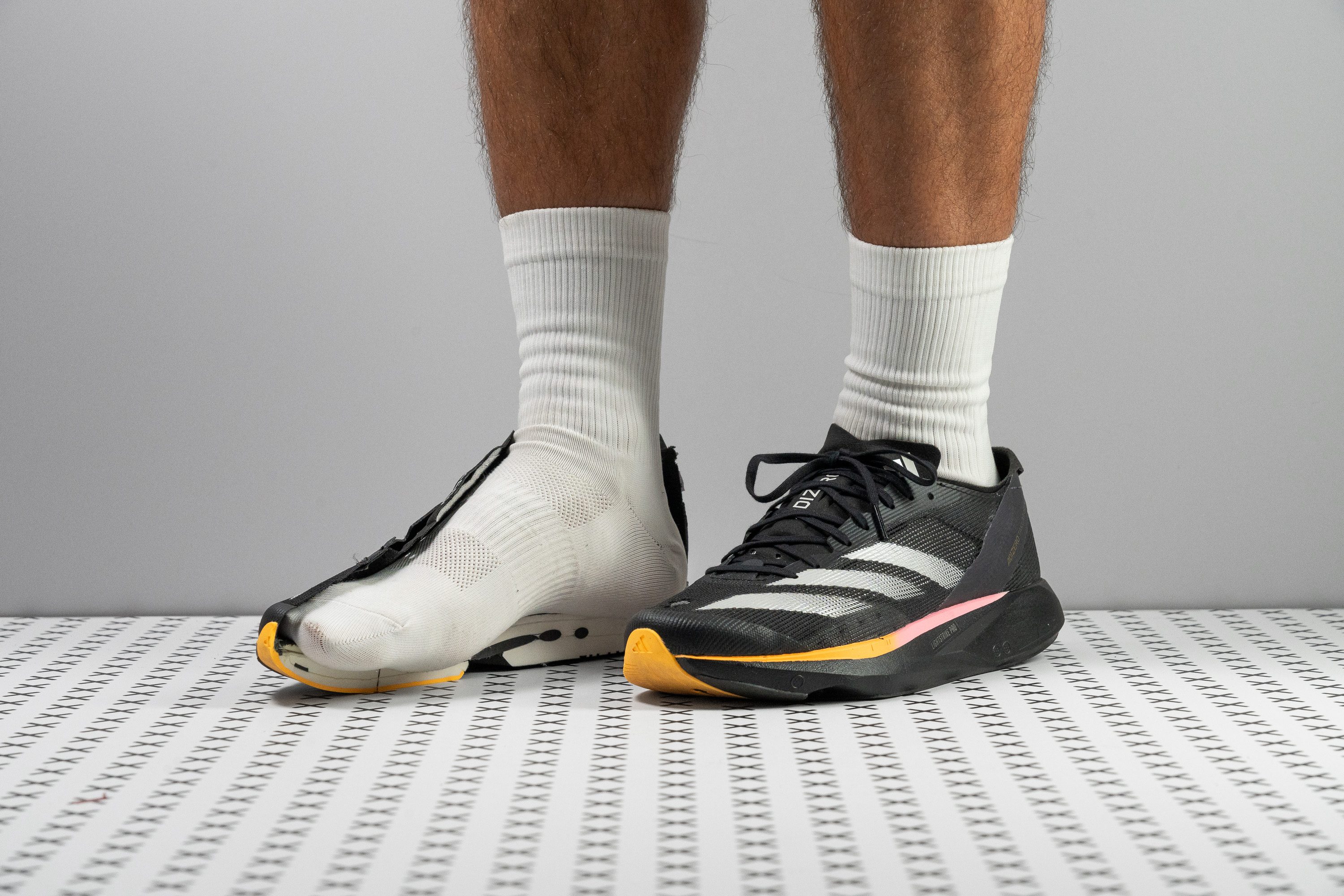Our verdict
Pros
- Lightweight
- Awesome for 5K/10K races
- Responsive Lightstrike Pro midsole
- Breathable engineered mesh
- Loves to go fast
- Awesome for track workouts
- Continental rubber
- Amazing at taking corners
- Recycled materials in the upper
Cons
- Not for heel strikers
- Durability concerns
- Extremely cramped fit
Audience verdict
- Top 26% in road running shoes
- Top 25% in neutral running shoes
Comparison
The most similar running shoes compared
+ + Add a shoe | |||||
|---|---|---|---|---|---|
| Audience score | 89 Great! | 90 Superb! | 83 Good! | 87 Great! | |
| Price | £170 | £110 | £170 | £145 | |
| Pace | CompetitionTempo | Daily runningTempo | CompetitionTempo | Tempo | |
| Shock absorption | High | High | Moderate | Moderate | |
| Energy return | High | Moderate | High | High | |
| Traction | High | High | High | Moderate | |
| Arch support | Neutral | Neutral | Neutral | Neutral | |
| Weight lab Weight brand | 7.1 oz / 200g 6.9 oz / 196g | 8.6 oz / 245g 8.4 oz / 238g | 6.5 oz / 184g 6.5 oz / 184g | 6 oz / 171g 6 oz / 171g | |
| Lightweight | ✓ | ✓ | ✓ | ✓ | |
| Drop lab Drop brand | 7.8 mm 6.0 mm | 8.2 mm 9.0 mm | 6.9 mm 7.0 mm | 6.3 mm 6.0 mm | |
| Strike pattern | Mid/forefoot | HeelMid/forefoot | Mid/forefoot | Mid/forefoot | |
| Size | Half size small | Half size small | - | True to size | |
| Midsole softness | Soft | Balanced | Soft | Soft | |
| Difference in midsole softness in cold | Small | Small | Small | Small | |
| Toebox durability | Bad | Bad | Good | - | |
| Heel padding durability | Good | Good | Good | - | |
| Outsole durability | Bad | Decent | Decent | - | |
| Breathability | Breathable | Breathable | Warm | Breathable | |
| Width / fit | Narrow | Wide | Medium | Narrow | |
| Toebox width | Medium | Medium | Medium | Medium | |
| Stiffness | Moderate | Moderate | Moderate | Flexible | |
| Torsional rigidity | Stiff | Moderate | Stiff | Flexible | |
| Heel counter stiffness | Flexible | Flexible | Flexible | Flexible | |
| Rocker | ✗ | ✗ | ✓ | ✓ | |
| Heel lab Heel brand | 30.6 mm 33.0 mm | 34.9 mm 35.0 mm | 30.6 mm 32.0 mm | 31.7 mm 32.0 mm | |
| Forefoot lab Forefoot brand | 22.8 mm 27.0 mm | 26.7 mm 26.0 mm | 23.7 mm 25.0 mm | 25.4 mm 26.0 mm | |
| Widths available | Normal | NormalWide | Normal | Normal | |
| Orthotic friendly | ✓ | ✓ | ✓ | ✓ | |
| Season | SummerAll seasons | SummerAll seasons | All seasons | SummerAll seasons | |
| Removable insole | ✓ | ✓ | ✓ | ✓ | |
| Ranking | #165 Top 25% | #46 Top 13% | #284 Bottom 25% | #155 Top 41% | |
| Popularity | #481 Bottom 29% | #180 Top 48% | #290 Bottom 24% | #220 Bottom 42% |
Who should buy
We think the Adidas Adizero Takumi Sen 10 stands out as a superb option for runners who demand speed:
- Midfoot and forefoot strikers will find its massive energy return and aggressive grip perfect for shaving seconds off all 5K and 10K races.
- Track enthusiasts will appreciate the spike-like feel—close to the ground and highly responsive—yet with enhanced leg protection.
- Admirers of the Takumi Sen legacy will be pleased too, as the 10th edition maintains its hallmark attributes—it’s lightweight, narrow, and built for speed.
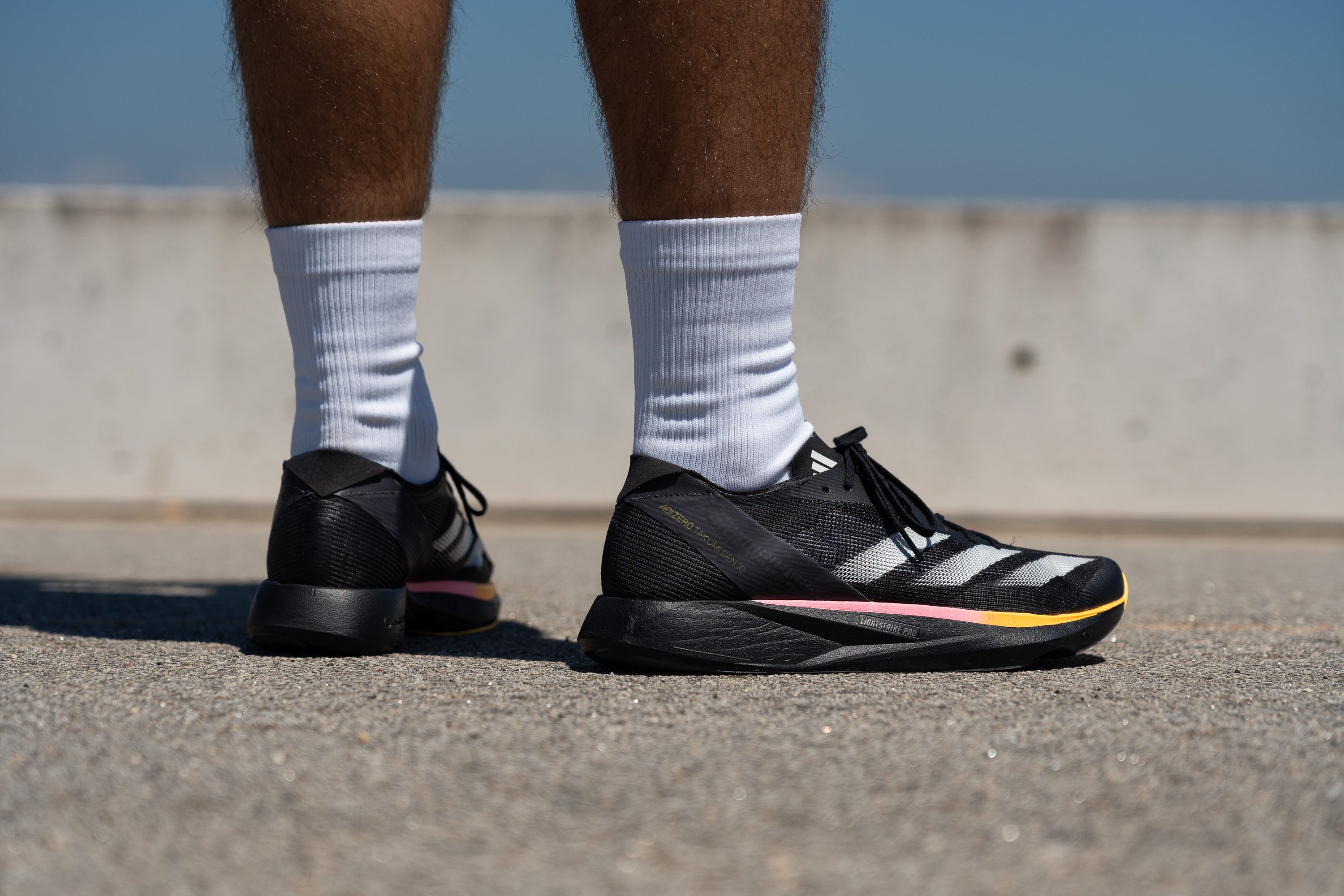
Who should NOT buy
The Takumi Sen 10 is not suited for rearfoot strikers or those with wider feet—it has a super-narrow heel and a cramped toebox and we found the heel stability lacking, which might pose a problem for many runners. For a better fit and more stable ride, we suggest the Saucony Endorphin Pro 4 or the Adidas Adios Pro 3.
We also think the Takumi Sen 10 has an suboptimal cushioning-to-weight ratio. From our lab analysis, runners looking for substantial foam underfoot will find better options in pricier models like the Saucony Endorphin Elite or the Nike Vaporfly 3, even for 5K races.
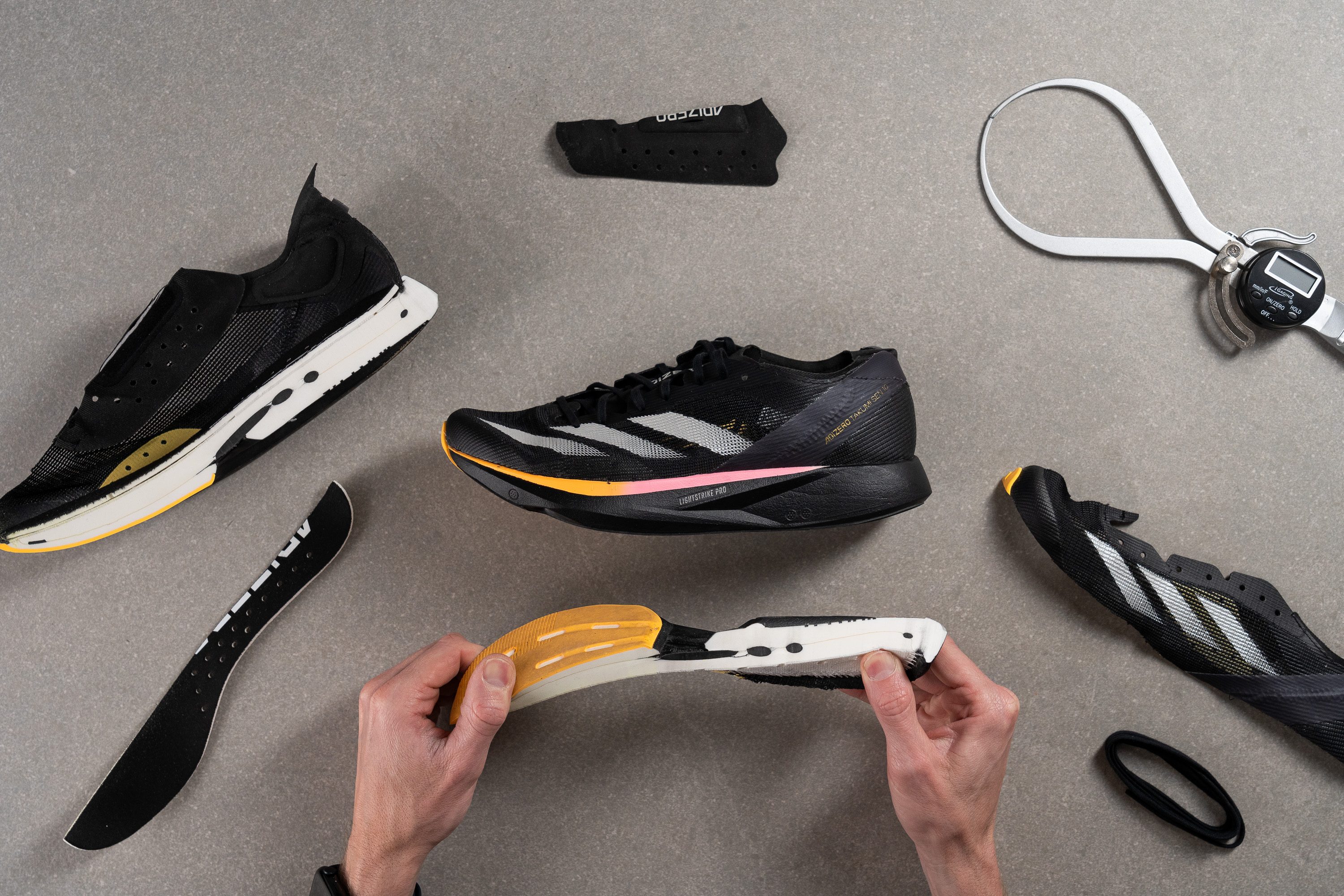
Cushioning
Shock absorption
Despite lacking a towering stack height, the Takumi Sen 10 delivers impressive shock absorption thanks to its full-length Lightstrike Pro foam. We measured 131 SA in our test, confirming that it easily handles events up to the half marathon.
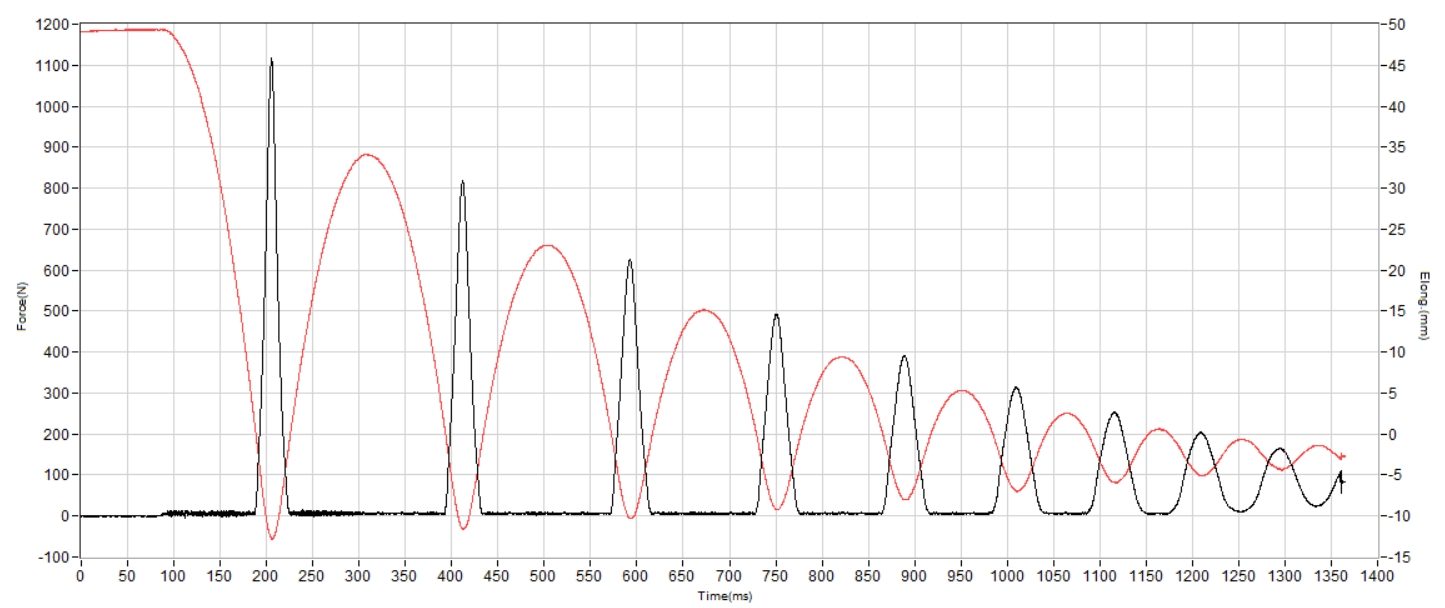
| Adizero Takumi Sen 10 | 131 SA |
| Average | 130 SA |
Energy return
Energy return reached a solid 71.8% in the heel, exactly what we anticipated from a full superfoam midsole paired with a slightly trimmed stack height compared to a standard super shoe like the Adios Pro 4. However, that reduced profile also pays off with added agility and lower overall weight.
| Adizero Takumi Sen 10 | 71.8% |
| Average | 58.6% |
Heel stack
With a heel stack of just 30.6 mm, World Athletics surely verified that the Takumi Sen 10 meets their road racing regulations (40 mm) with ease, just as we did.
With that said, heavier runners—especially heel strikers—might find the Takumi Sen 10 suitable only for distances up to 10K. Lighter athletes, however, might use it in half marathons. We also think that opting to race a marathon in this model doesn’t seem practical for almost anyone, except for some exceptionally light individuals.
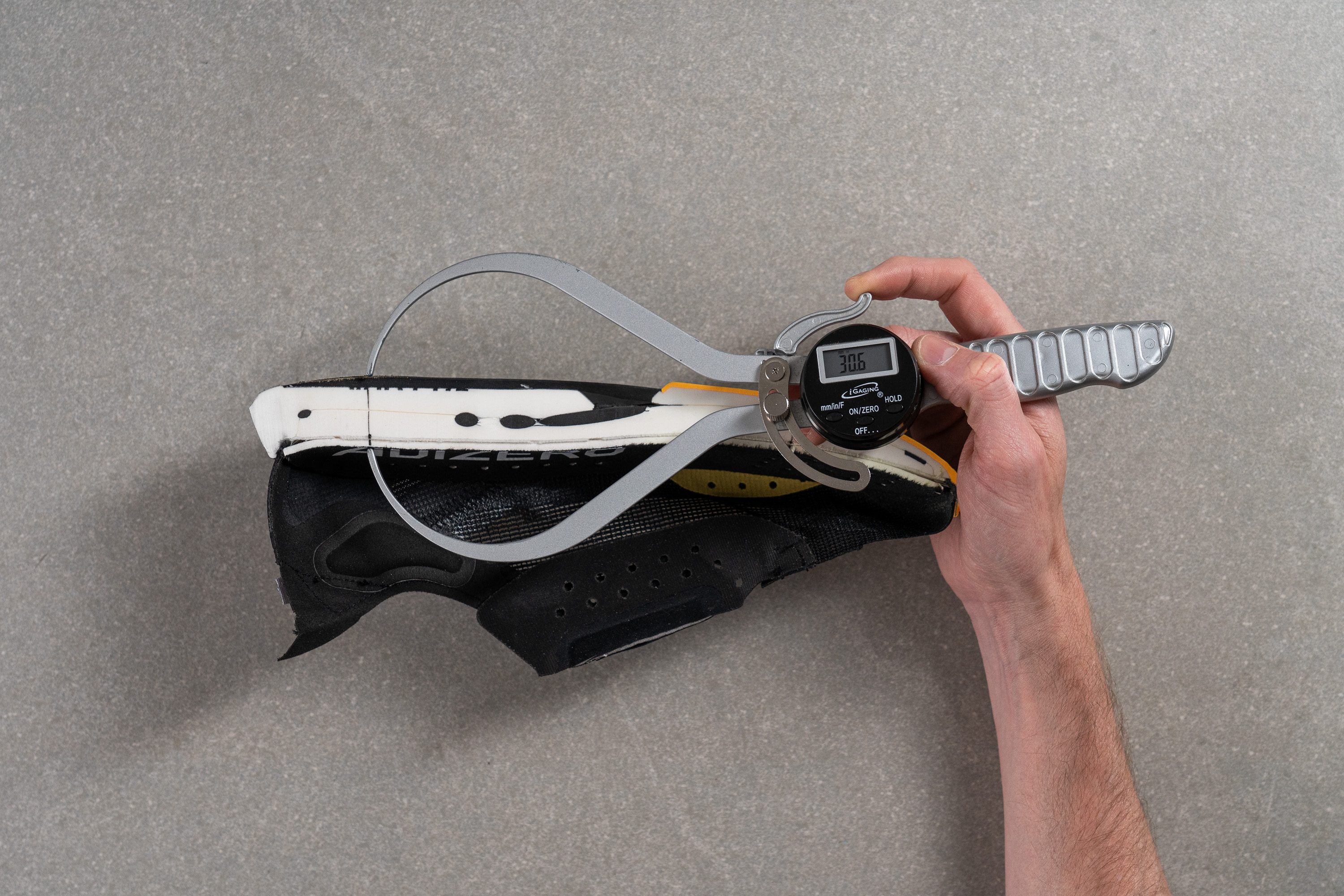
| Adizero Takumi Sen 10 | 30.6 mm |
| Average | 34.8 mm |
Forefoot stack
With only 22.8 mm in the forefoot, this shoe embodies the perfect modern racing flat, providing an excellent mix of ground feel and top-notch foam technology.
It's ideal for track workouts, delivering an experience akin to wearing running spikes but in a road shoe package.
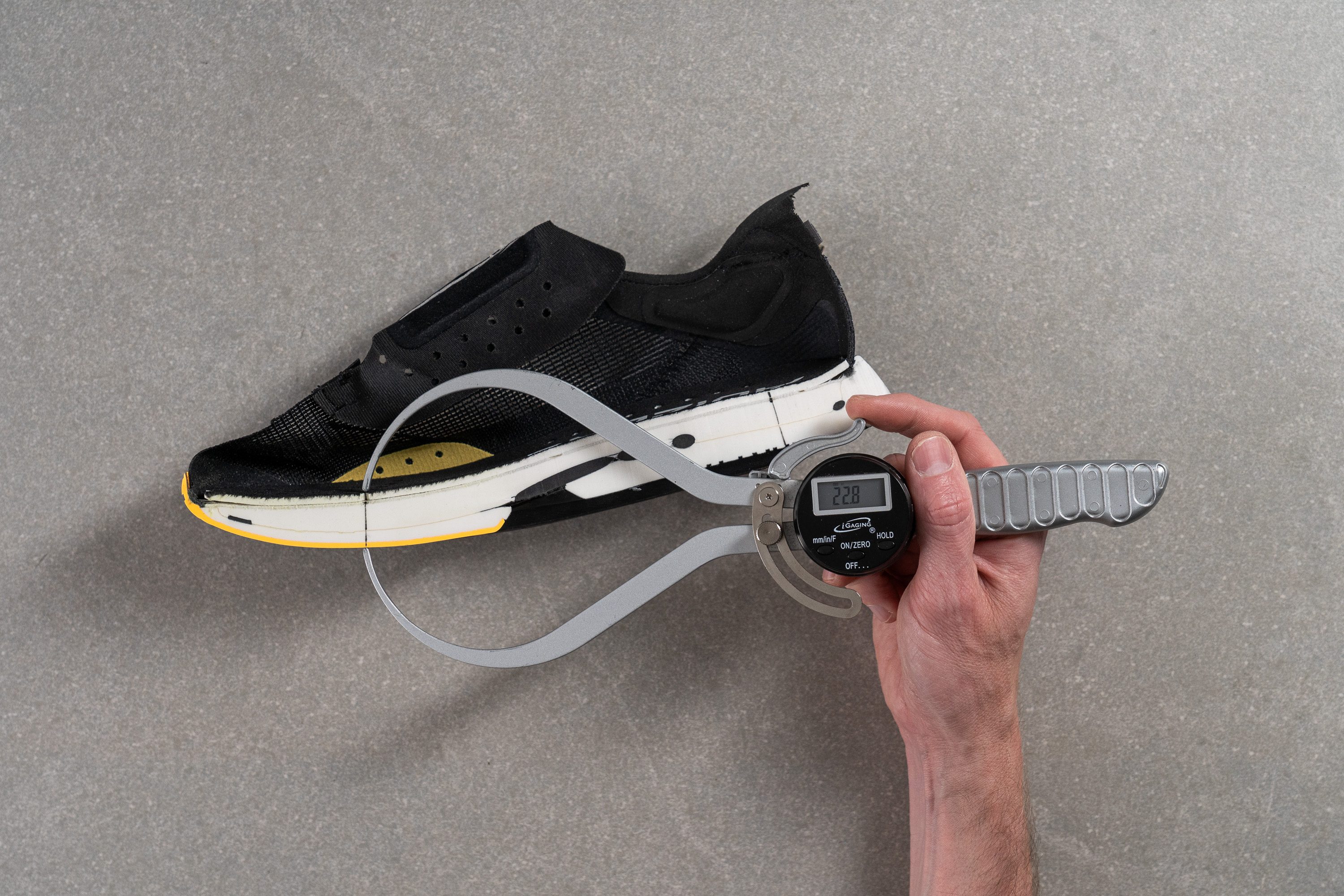
| Adizero Takumi Sen 10 | 22.8 mm |
| Average | 26.2 mm |
Drop
Adidas advertises the Takumi with a 6-mm drop, but after several precise measurements following World Athletics guidelines, we determined it to be 7.8 mm, still a mid-drop shoe anyway.
This discrepancy of 1.8 mm might seem significant, but it's well within normal manufacturing tolerances or could be attributed to the natural compression of the foam. It's a minor variation that shouldn't raise any concerns.
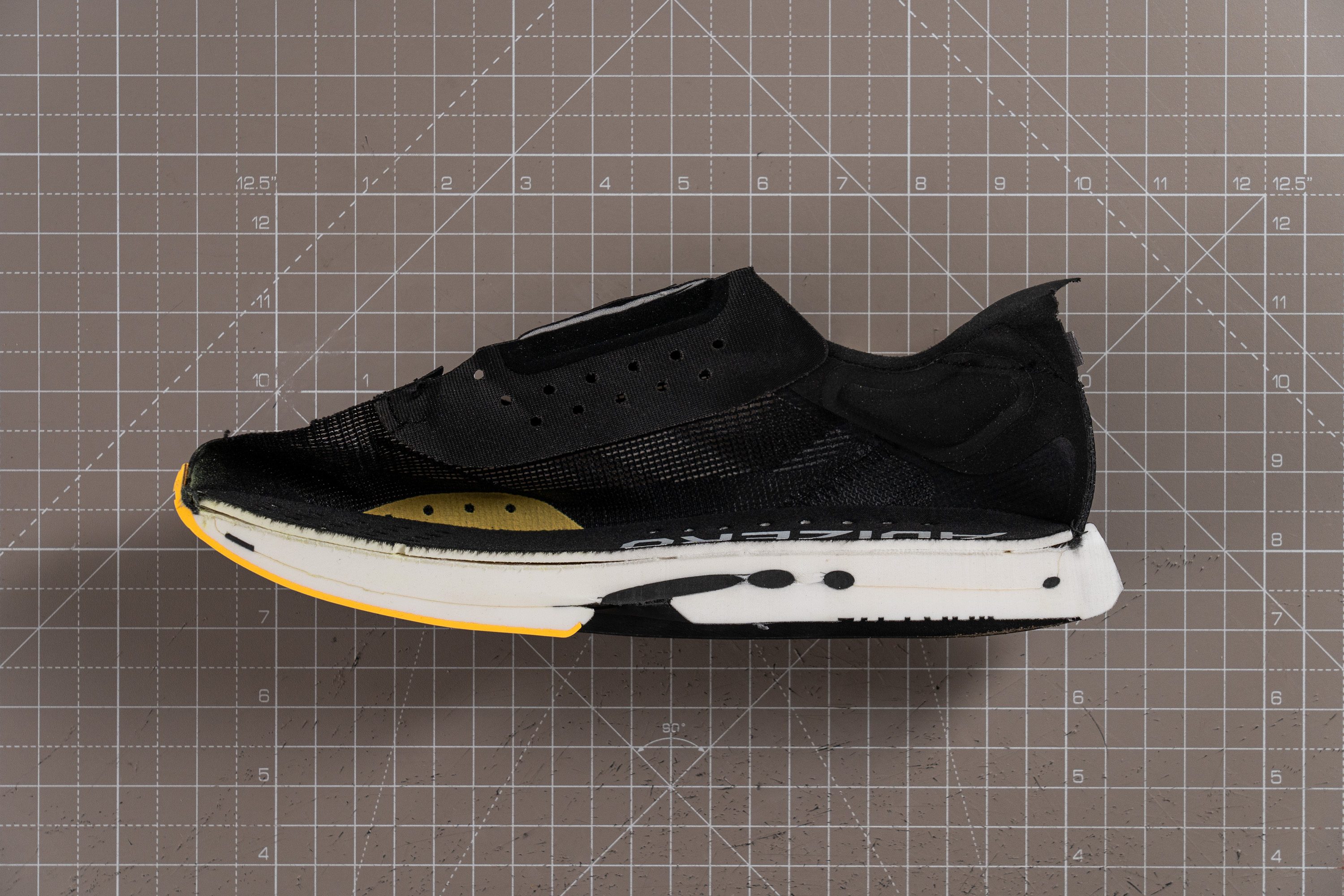
| Adizero Takumi Sen 10 | 7.8 mm |
| Average | 8.6 mm |
Midsole softness
Adidas has adopted the super shoe midsole design started by Nike with the Vaporfly—two slabs of superfoam sandwiching a stiffening agent. For the Takumi Sen 10, instead of a carbon plate, it features Energy Rods 2.0 made from fibreglass to ensure the shoe isn’t too stiff.
We’ll start by discussing the midsole, and later we will cover the rods. The first of the two TPEE-based Lightstrike Pro layers is the one closer to the foot, formulated with more softness and less density (13.4 HA) to enhance foam compression and comfort.
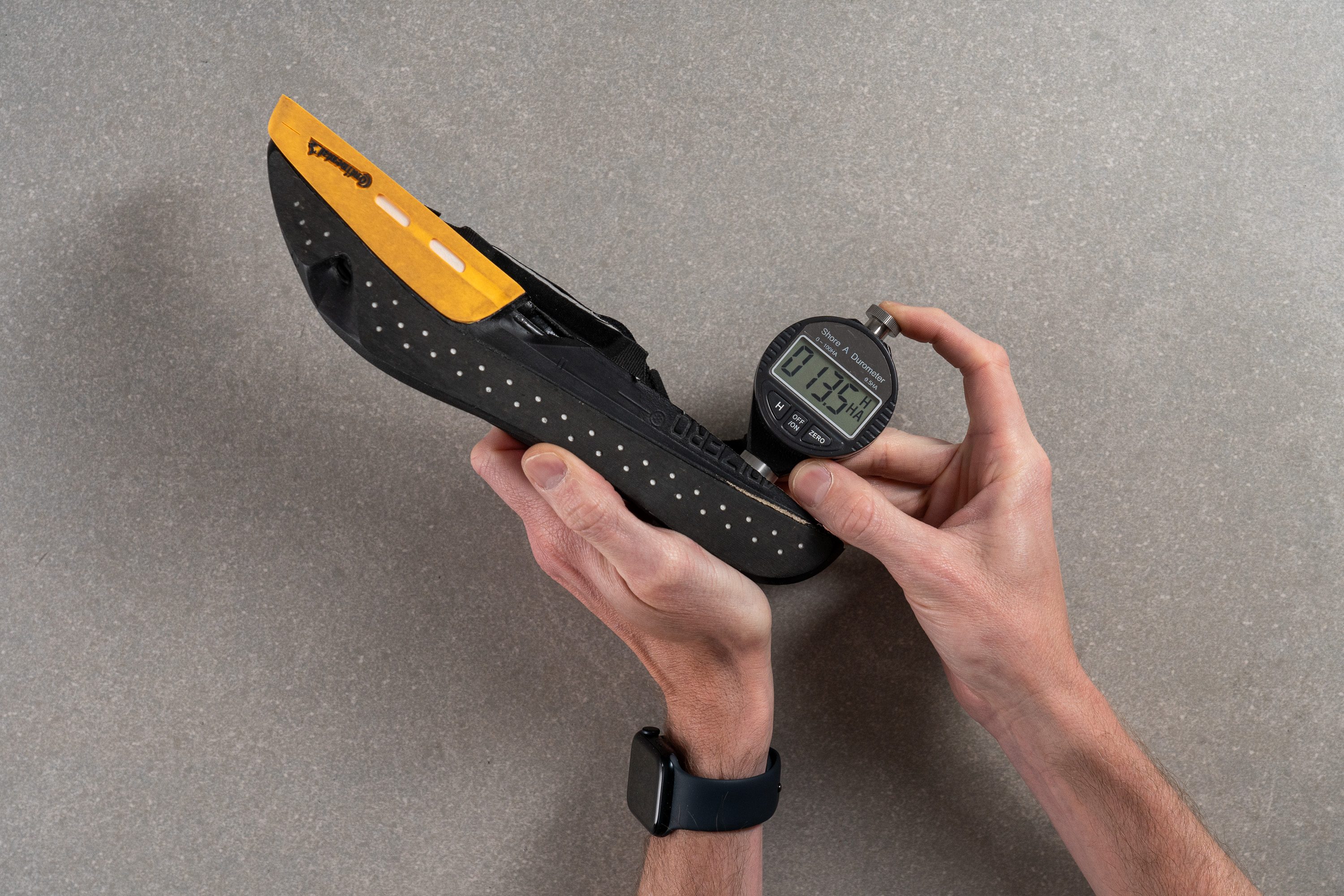
| Adizero Takumi Sen 10 | 13.4 HA |
| Average | 20.4 HA |
Secondary foam softness
The second layer of foam is the one closest to the ground. It’s denser and firmer at 20.4 HA, which helps stabilize the shoe and prevents bottoming out despite its relatively low design. It also results in a ride that lacks plushness, providing a firmer, more responsive overall feel, as it should be in any Takumi Sen.
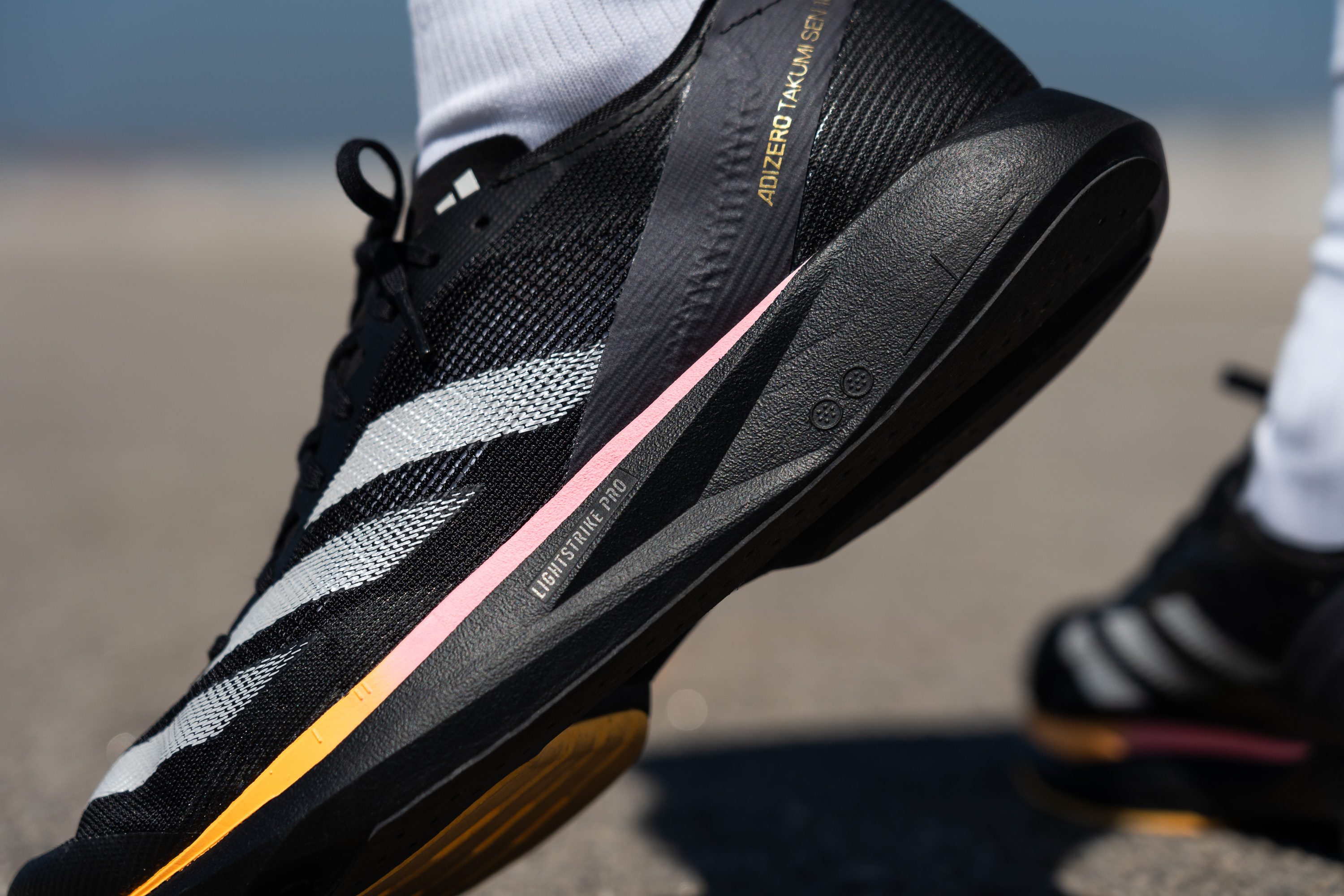
| Adizero Takumi Sen 10 | 20.4 HA |
| Average | 22.7 HA |
Rocker
We already hinted at a natural, classic ride in the Takumi Sen 10, and its subtle toe rocker confirms this.
The rocker is minimal by today's standards, providing just enough assistance during toe-off, leaving the rest of the work to your feet. This feature is fantastic for short races and manoeuvring around corners in 5Ks that are anything but straight lines.
Size and fit
Size
Adidas Adizero Takumi Sen 10 fits half size small (134 votes).
Consider sizing up
Internal length
| Adizero Takumi Sen 10 | 269.4 mm |
| Average | 269.4 mm |
Width / Fit
The Takumi Sen series has consistently maintained a performance fit throughout its iterations, and the 10th edition continues this tradition.
Measuring just 96.6 mm across the widest part of the upper, the shoe is absolutely perfect for those with narrow feet. It also offers a spike-like, low-volume secure lockdown that runners with average-width feet will appreciate during short intervals or races, providing a snug, race-ready feel.
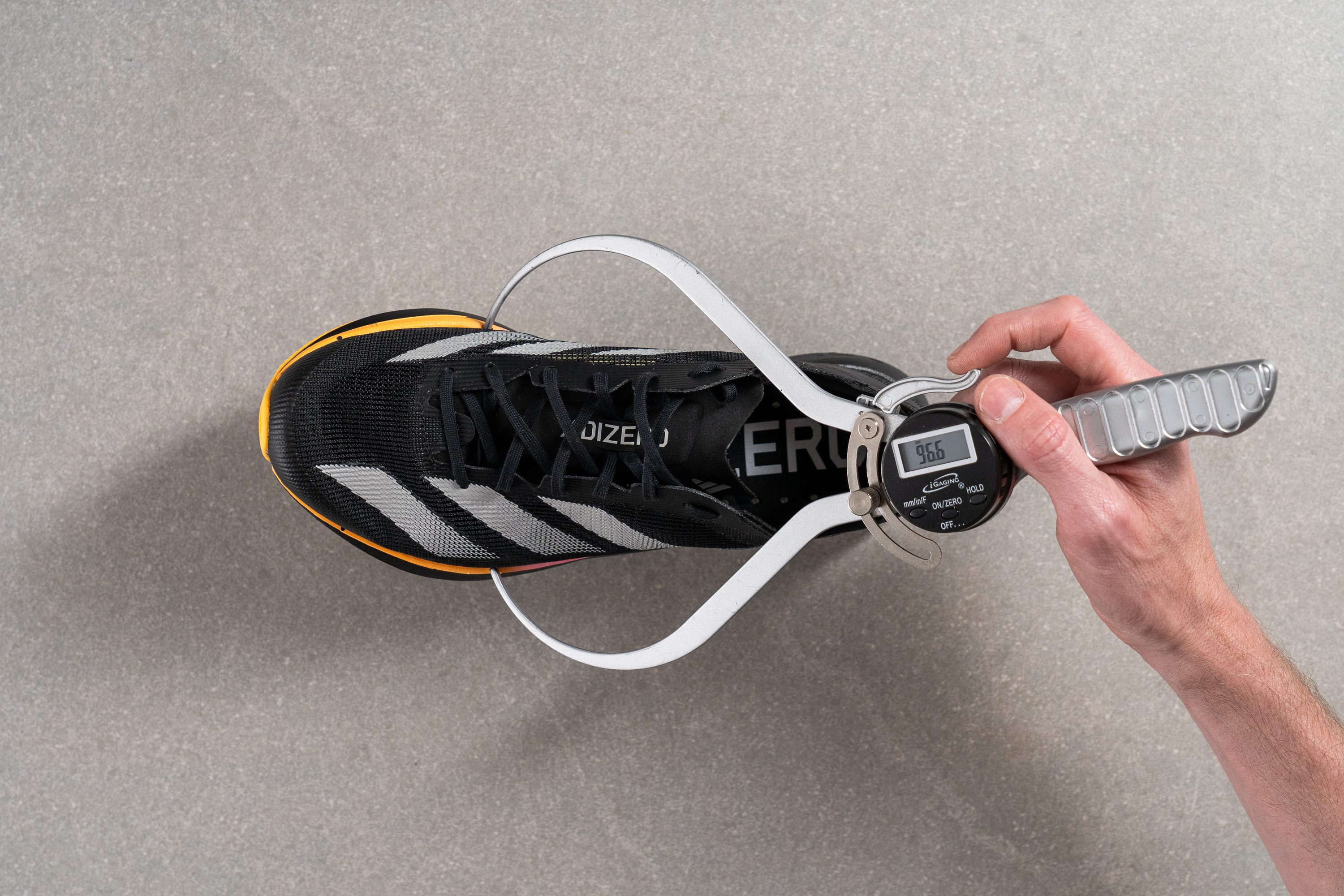
This test follows an older methodology, which is why you don't see recently tested shoes in the chart. Results from different methodologies can not be compared.
| Adizero Takumi Sen 10 | 96.6 mm |
| Average | 98.5 mm |
Toebox width
This trend extends to the big toe area as well. We measured its width at 75.2 mm, clearly revealing a notable taper.
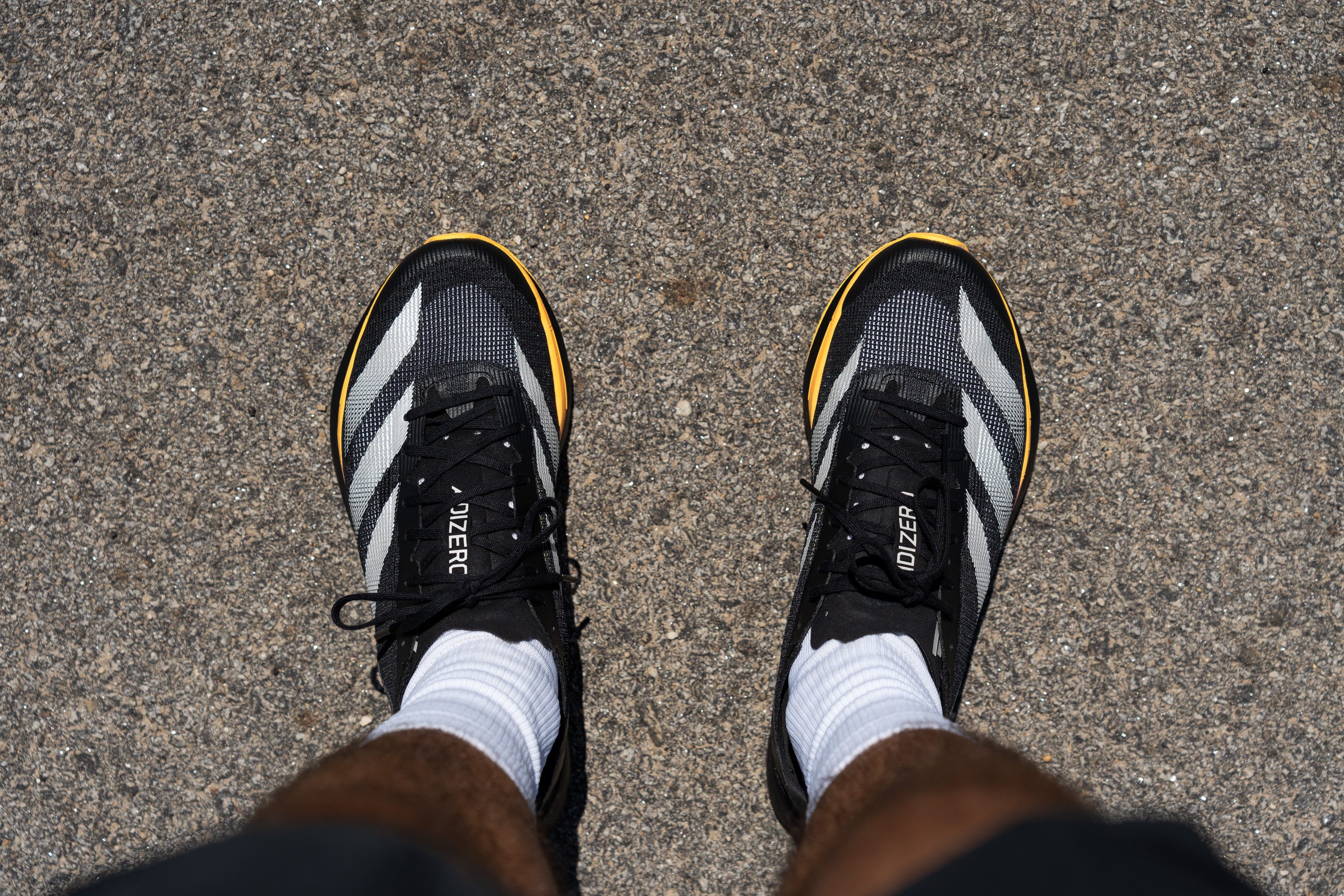
This design likely makes the shoe unsuitable for those with wide feet, as the snug fit may not accommodate those with broader or square foot shapes.
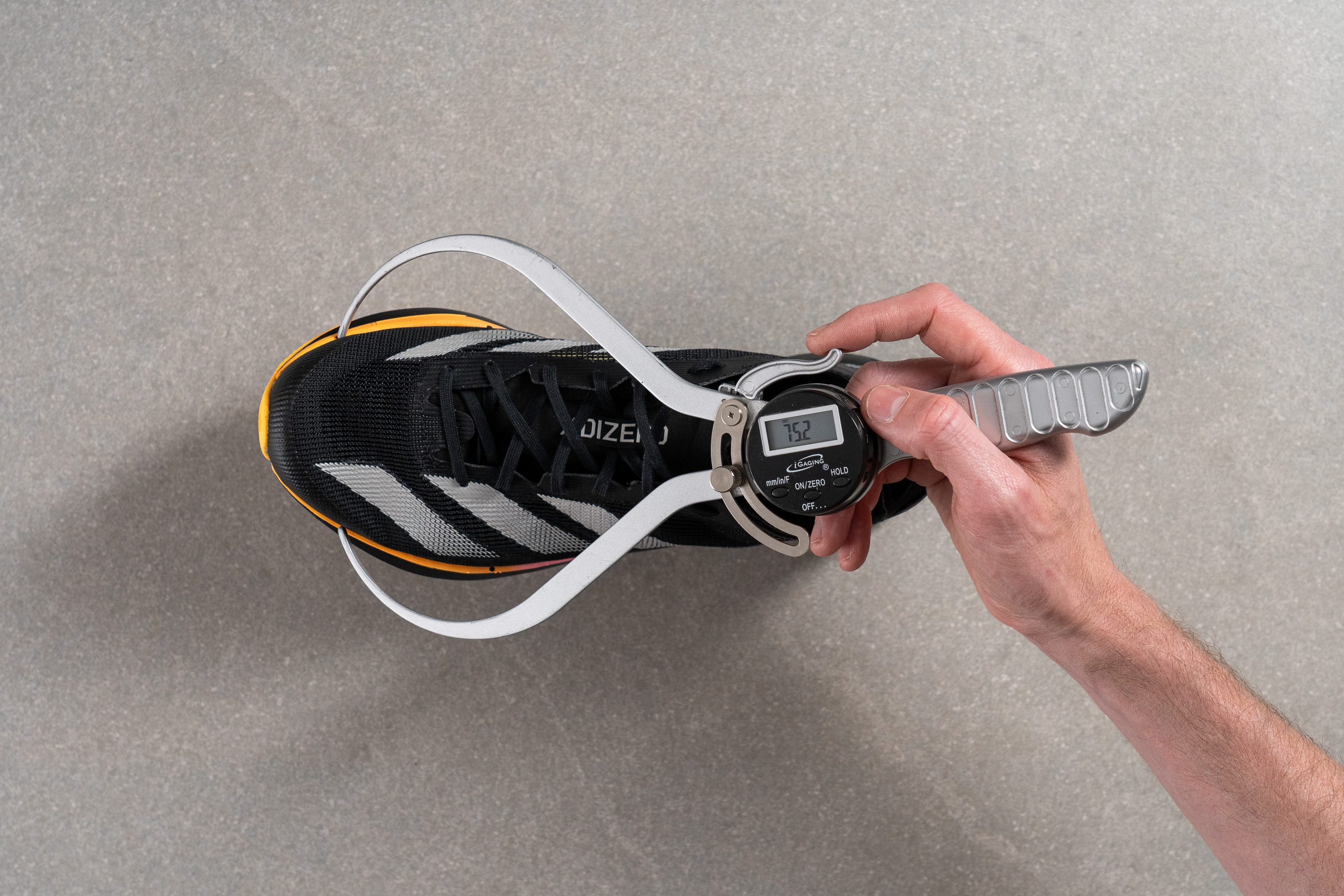
This test follows an older methodology, which is why you don't see recently tested shoes in the chart. Results from different methodologies can not be compared.
| Adizero Takumi Sen 10 | 75.2 mm |
| Average | 78.4 mm |
Traction / Grip
Traction test
We were excited to see the Continental logo on the outsole—and the traction didn’t let us down.
It scored 0.50 in our lab test, which sits right at the average. Still, based on our experience, shoes hitting this mark always provide reliable grip on both wet and dry surfaces, as most running shoes today grip very well on dry ground—even the cheaper ones. Times have changed!
| Adizero Takumi Sen 10 | 0.50 |
| Average | 0.49 |
Outsole design
The Takumi Sen 10 features a race-ready outsole made up of three distinct sections: a forefoot layer of Continental yellow rubber, two heel pads with sandpaper-like texture, and exposed foam through the arch.
Adidas clearly designed this layout for midfoot and forefoot strikers, trimming down heel rubber to a small lateral slab. The deep cutouts around the midfoot help to trim some weight too.
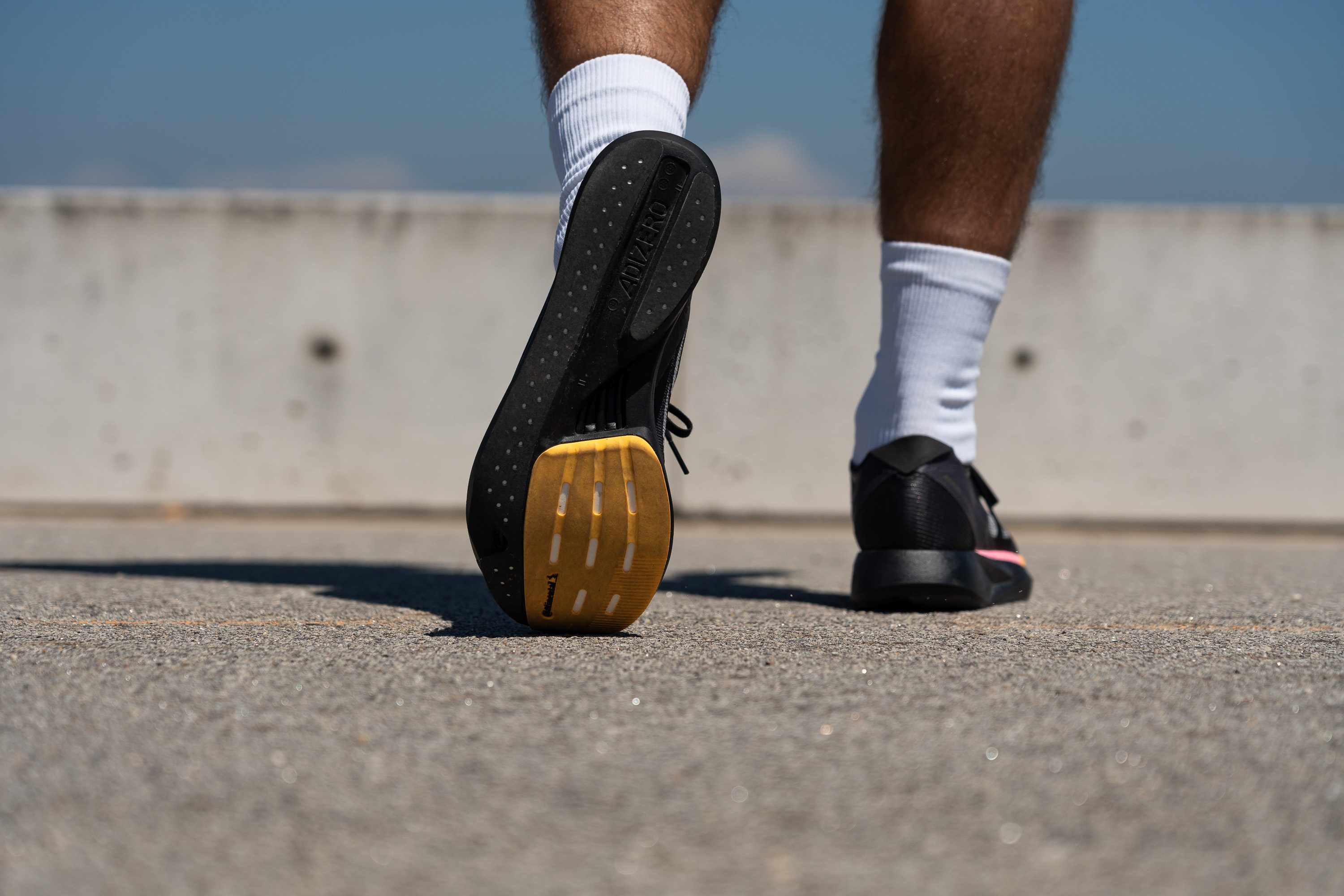
Flexibility / Stiffness
We already mentioned that the Energy Rods are made from fiberglass instead of carbon fiber. This results in a less stiff, more forgiving shoe. We tested the Sen 10 in our 30-degree bend test, requiring just 16.2N of force, less than what's usually needed for carbon-plated shoes.
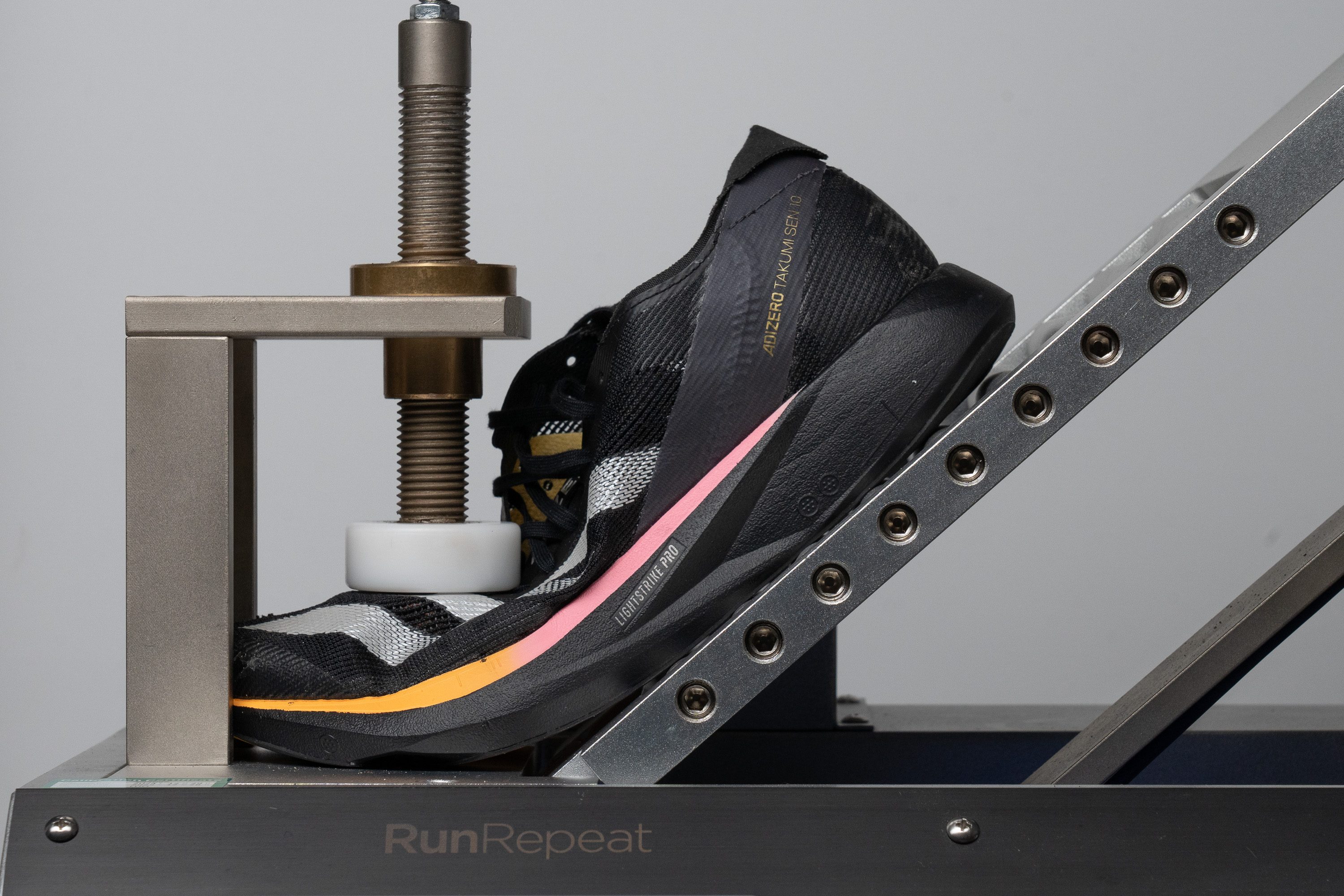
| Adizero Takumi Sen 10 | 16.2N |
| Average | 15.3N |
Stiffness in cold (%)
We tested it again after 20 minutes in our freezer and observed a 26% increase in stiffness—a result that we consider favorable.
| Adizero Takumi Sen 10 | 26% |
| Average | 33% |
Weight
One of the critical aspects of the Takumi Sen 10 is its attempt at maintaining a low weight—measured at just 7.1 oz or 200g. While this positions it as a featherweight contender, there's a significant drawback worth mentioning.
The shoe's Lightstrike Pro midsole, crafted from TPEE—more on this in our detailed guide on foams—is notably heavier than its PEBA-based competitors. Consequently, Adidas was forced to reduce the overall stack height and dimensions of the shoe to manage the weight effectively, and despite these efforts, it's still as heavy as the towering Nike Alphafly 3.
On a brighter note, it's worth mentioning that although heavier, Lightstrike Pro ages like fine wine, maintaining its top performance far longer than PEBA superfoams.
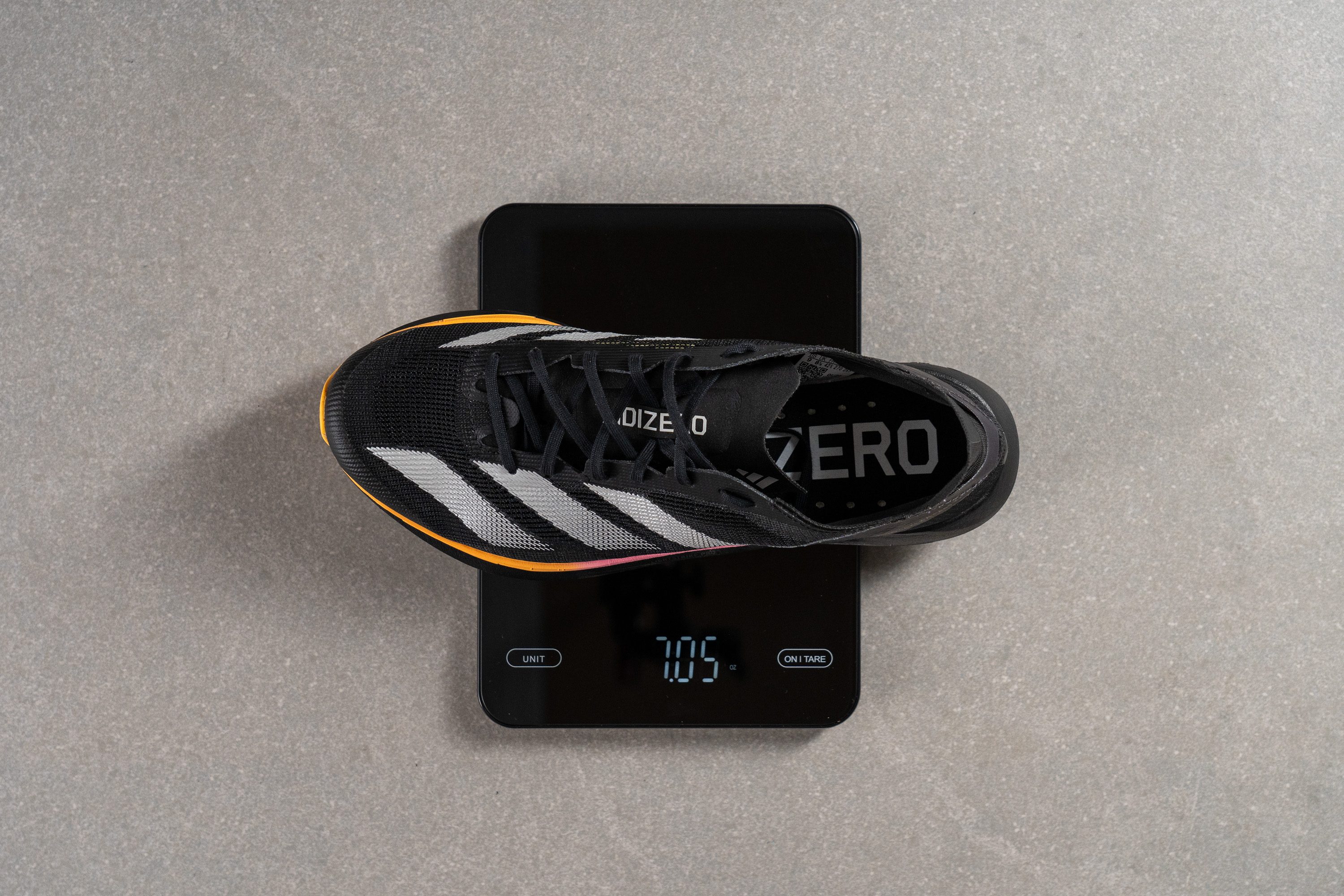
| Adizero Takumi Sen 10 | 7.1 oz (200g) |
| Average | 9.3 oz (264g) |
Breathability
Adidas is renowned for creating ultra-thin, see-through uppers in their racing shoes, and the Takumi Sen 10 is a prime example. We anticipate excellent results from our breathability tests because of this design.
Our smoke test confirmed our expectations—smoke easily escaped from the toebox, encountering virtually no resistance. This effortless airflow scored a perfect 5/5 from us.
We also examined the halved upper under a light and observed uniform transparency across most of the upper, not just in the toebox.
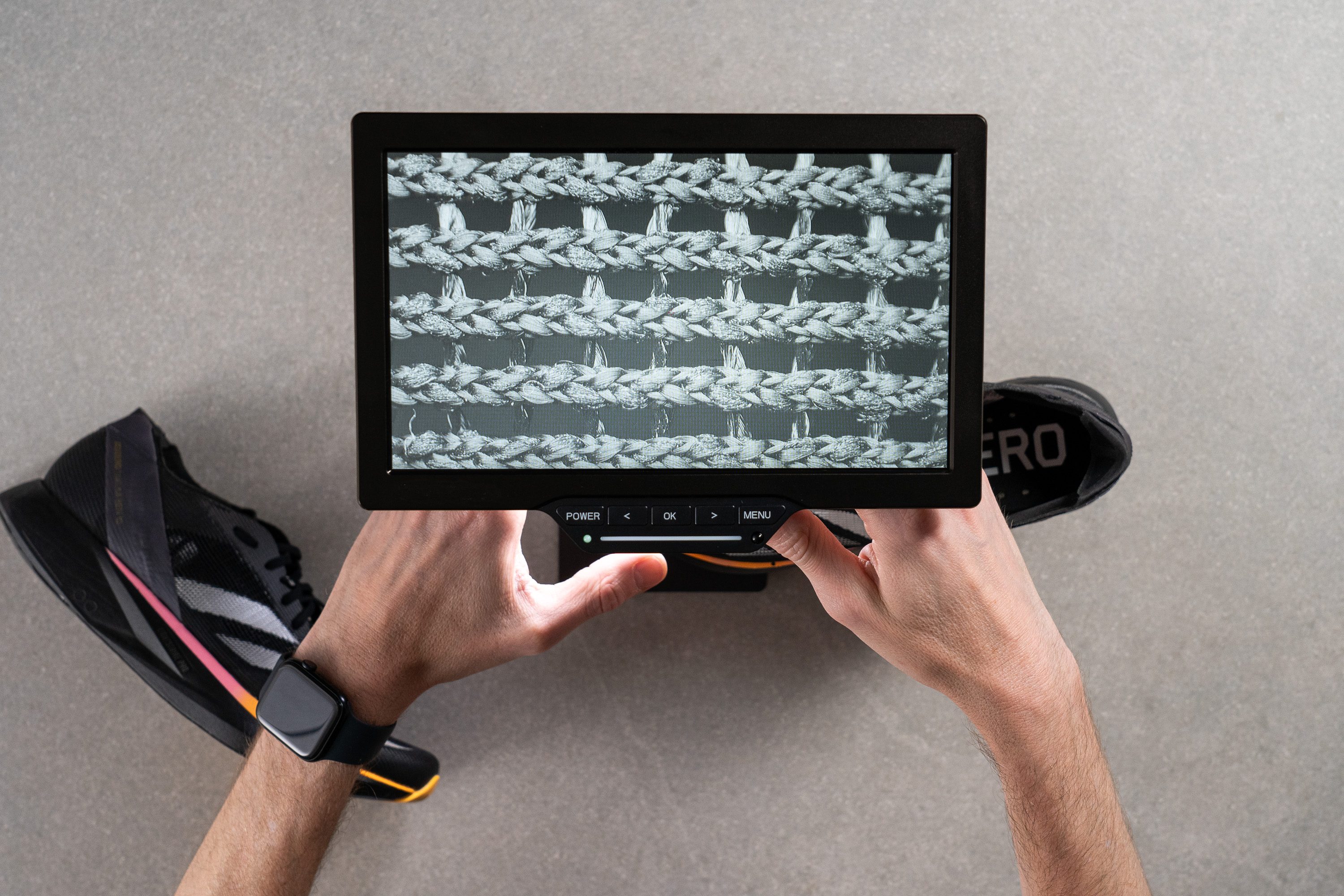
The next step was to use the microscope, an invaluable tool that unveils the true nature of the upper.
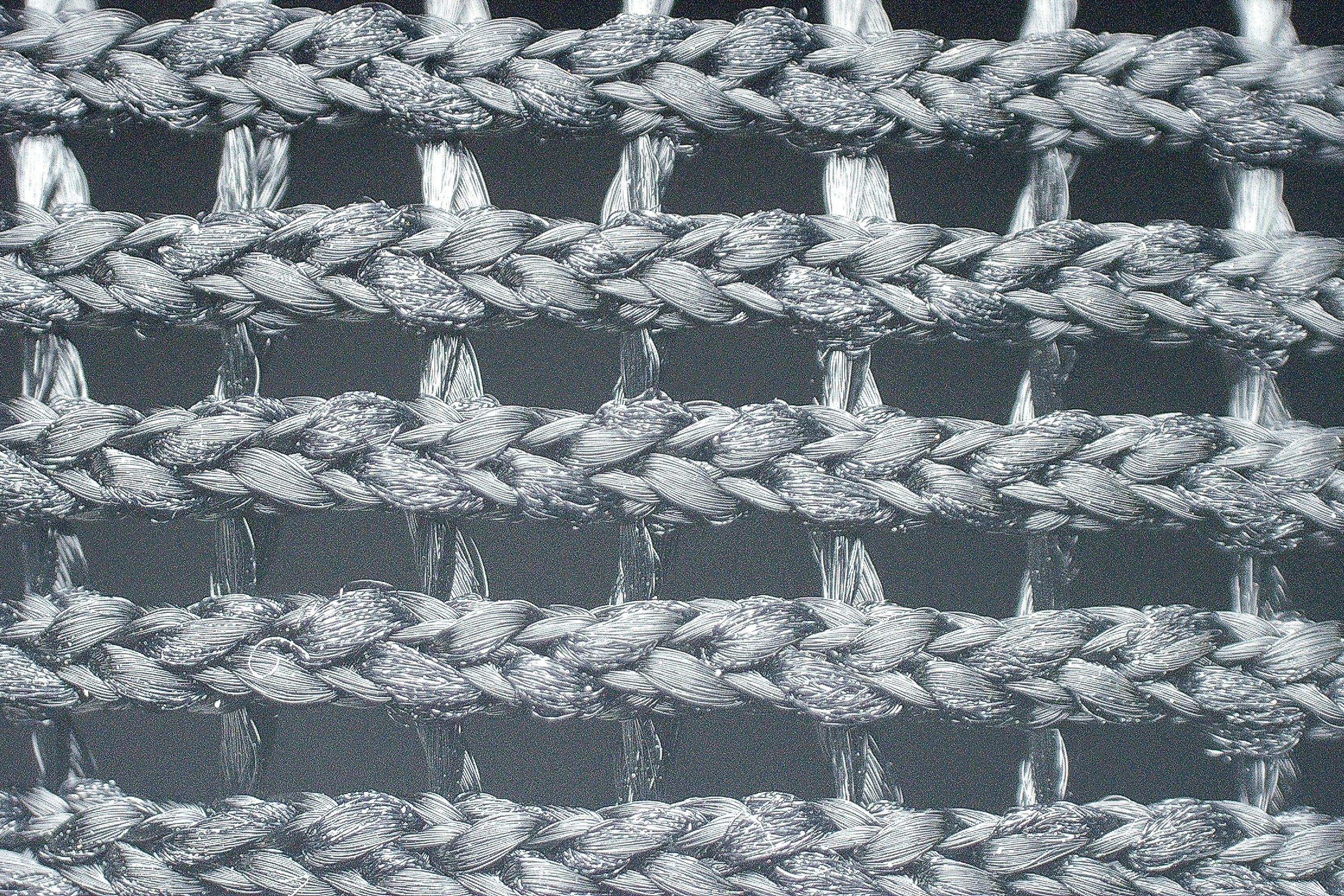
What we observed was a minimalistic, single-layer engineered mesh crafted with thicker horizontal yarns interwoven with thinner vertical ones, creating tonnes of microscopic holes.
While the Takumi's design significantly enhances its ventilation, the downside is a scratchy material. Combined with some rough internal stitches, it's totally unsuitable for going sockless. Sorry, triathletes!
| Adizero Takumi Sen 10 | 5 |
| Average | 3.7 |
Stability
Lateral stability test
The Takumi Sen 10 stands out from most other shoes on the market, and it's a bit unusual in terms of stability too, especially due to both midsole cutouts.
It has a narrow platform—particularly in the heel—without midsole sidewalls or a rigid heel counter, yet it still feels fairly stable for neutral runners, especially for forefoot strikers. We believe this is due to the combination of the firmer foam layer, Energy Rods, and low stack height, among other factors.
Torsional rigidity
With a stiffening agent in the midsole, we knew this shoe wouldn't offer much torsional flexibility. After our manual assessment, we found it to be a 4/5 in rigidity—confirming our expectations of a notably rigid shoe.
| Adizero Takumi Sen 10 | 4 |
| Average | 3.5 |
Heel counter stiffness
Contrary to the previous test, the heel counter offers no rigidity—it's just your heel against the upper. Obviously, this earned a 1/5 in our tests.
We can only recommend this shoe to those without any rearfoot stability concerns. Otherwise, we suggest the Saucony Endorphin Speed 4 for better heel security.
| Adizero Takumi Sen 10 | 1 |
| Average | 2.9 |
Midsole width - forefoot
Holding the Adidas Adizero Takumi Sen 10 next to almost any maximalist running shoe is almost comical—it's significantly smaller.
Starting with the forefoot, we measured it at just 110.3 mm, sitting below the typical width for most running shoes.
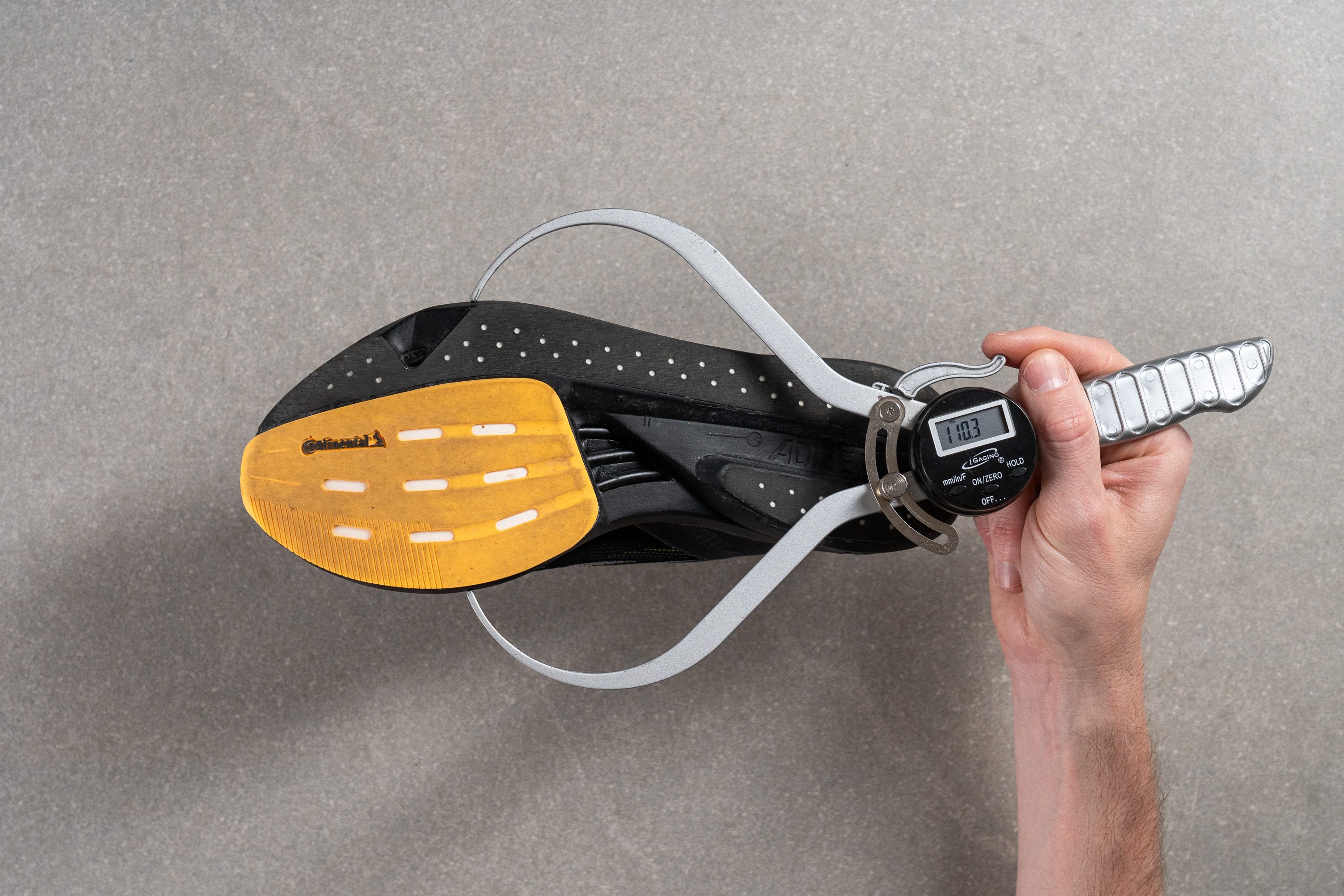
| Adizero Takumi Sen 10 | 110.3 mm |
| Average | 114.4 mm |
Midsole width - heel
The heel measurement of just 75.8 mm left us truly astonished. It's akin to driving a go-kart on a circuit—pure adrenaline, ideal for those who love an exhilarating ride or for track enthusiasts.
However, this narrow design makes the shoe not appealing at all for heel strikers. We highly recommend the ASICS Magic Speed 3 instead for those seeking better heel support.
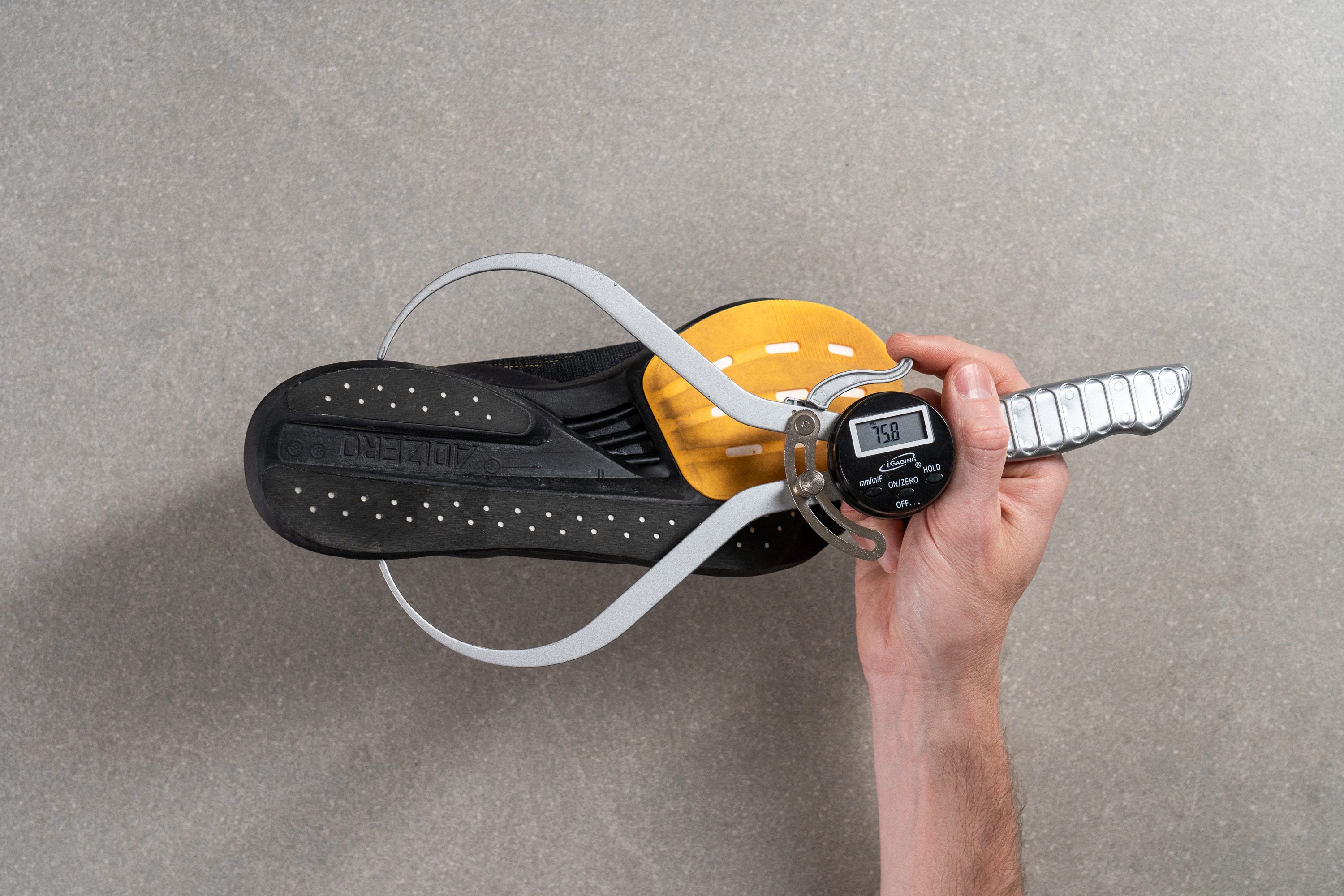
| Adizero Takumi Sen 10 | 75.8 mm |
| Average | 90.6 mm |
Durability
Toebox durability
Just as we anticipated excellent ventilation prior to our smoke-pumping test, we must now face the reality of this mesh in terms of durability.
The video clearly shows the Dremel tearing through the upper almost instantly—a clear demonstration of its fragility, compelling us to rate it a dismal 1/5.
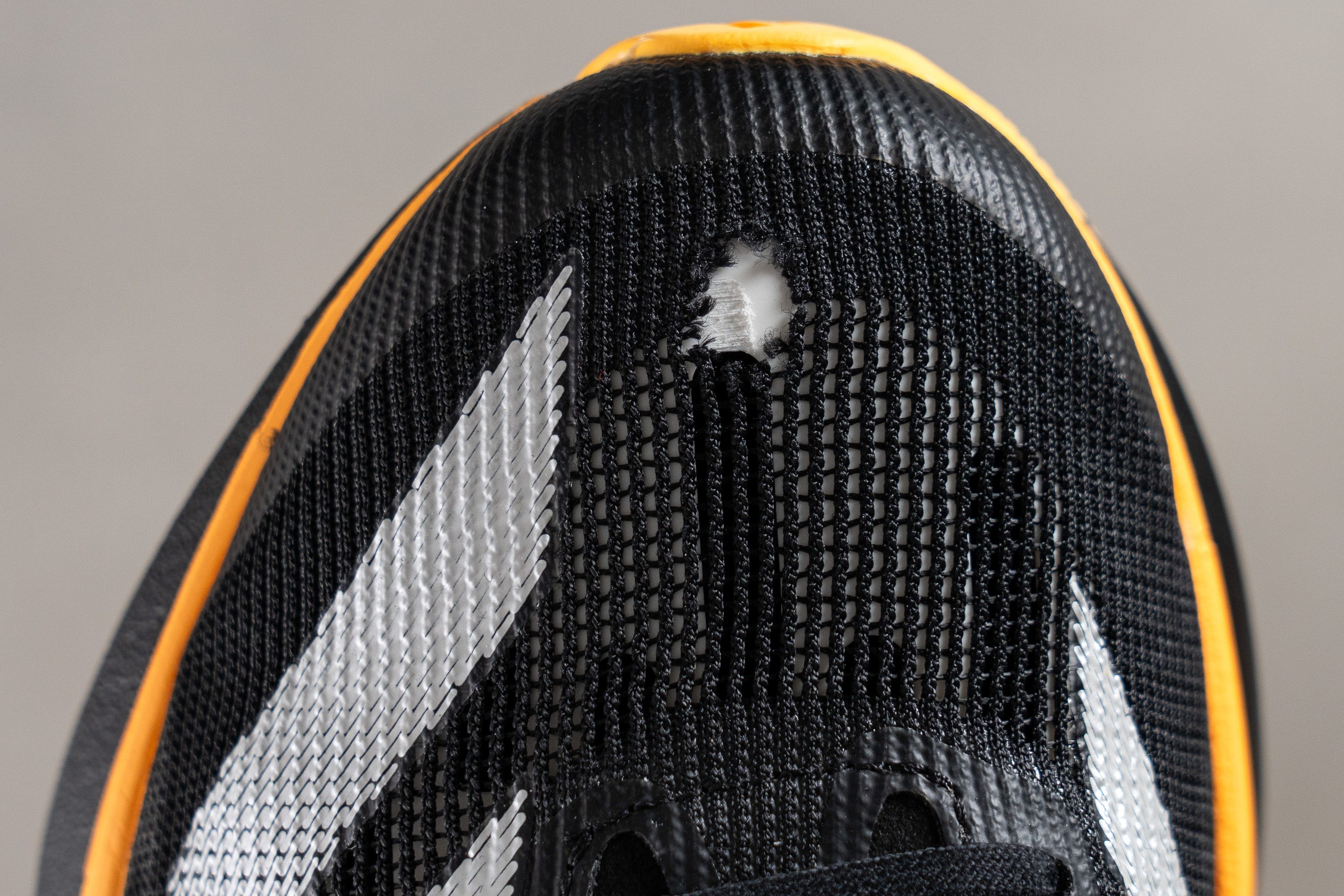
| Adizero Takumi Sen 10 | 1 |
| Average | 2.6 |
Heel padding durability
Much to our satisfaction, the heel counter outperformed expectations when subjected to the same rigours as the toebox.
The absence of padding in the heel—it has just two pads on either side—contributed significantly to a robust performance, earning it a solid 4/5 rating.
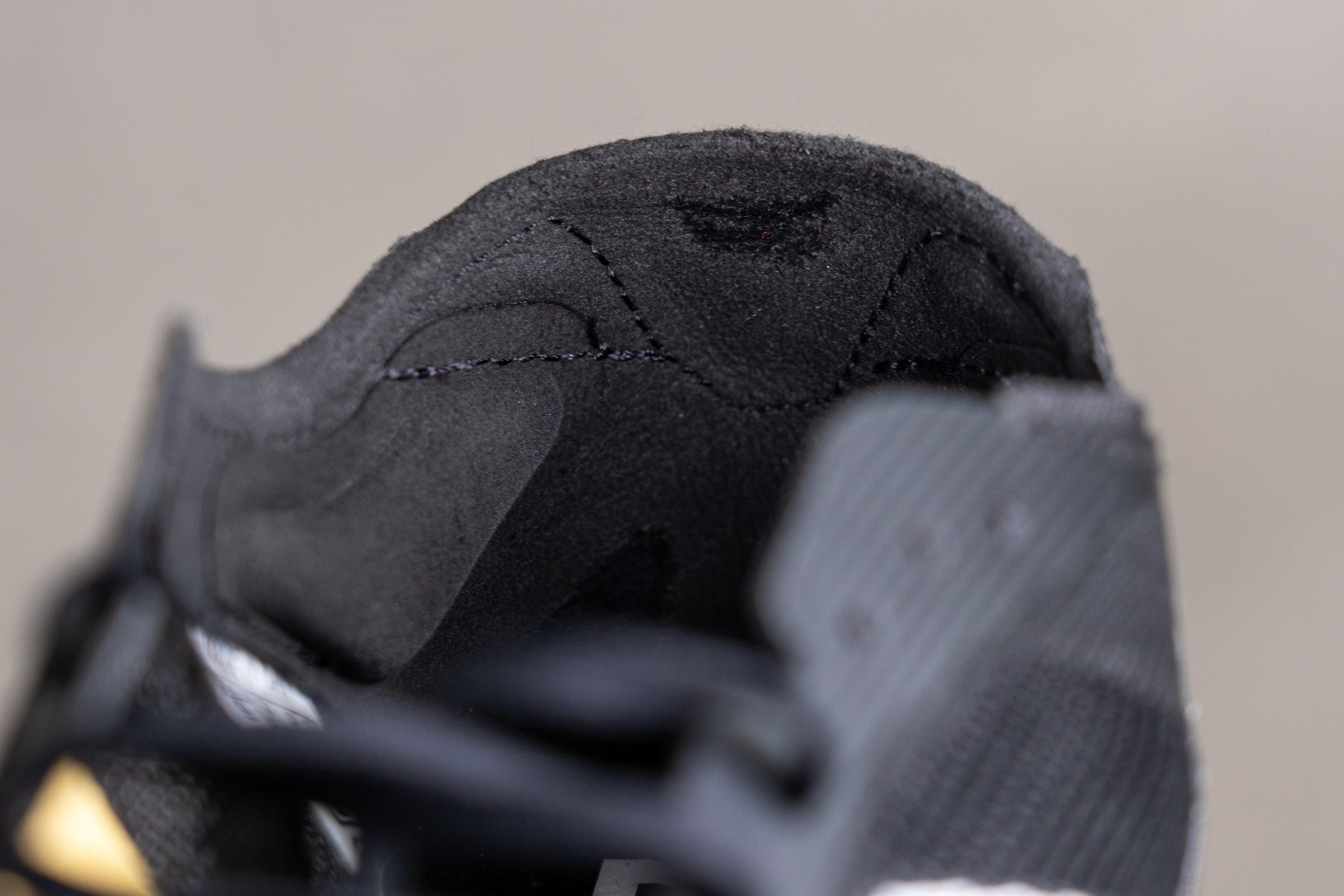
| Adizero Takumi Sen 10 | 4 |
| Average | 3.4 |
Outsole hardness
Our anticipation was high when we noticed the Continental logo on the outsole.

Initially, we measured the hardness of the thinner material, which registered at a notably soft 52.1 HC. To put this into perspective, consider the analogy of a Formula 1 car's soft tyres—they offer exceptional grip yet tend to wear out quickly. We're curious to see if a similar scenario unfolds here.
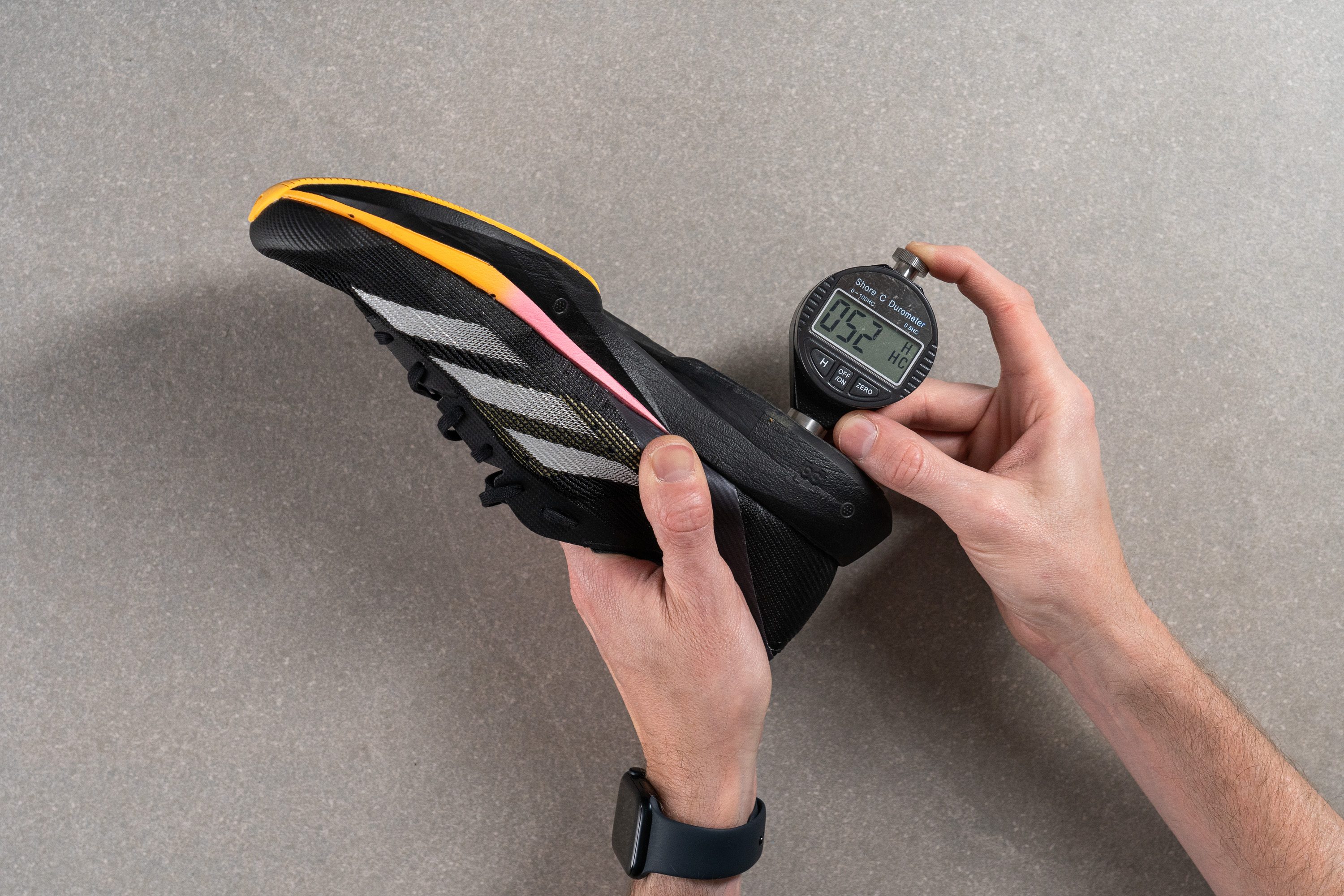
| Adizero Takumi Sen 10 | 52.1 HC |
| Average | 79.2 HC |
Outsole durability
To assess the durability of the sandpaper-like material on the outsole, we conducted one final test using the Dremel.
The results were concerning—our test left a 1.9-mm dent, severely damaging the outsole. While we anticipated some wear, the extent of the damage was disappointing. This finding is particularly worrisome for runners who tend to wear down the outer part of their shoes, such as supinators.
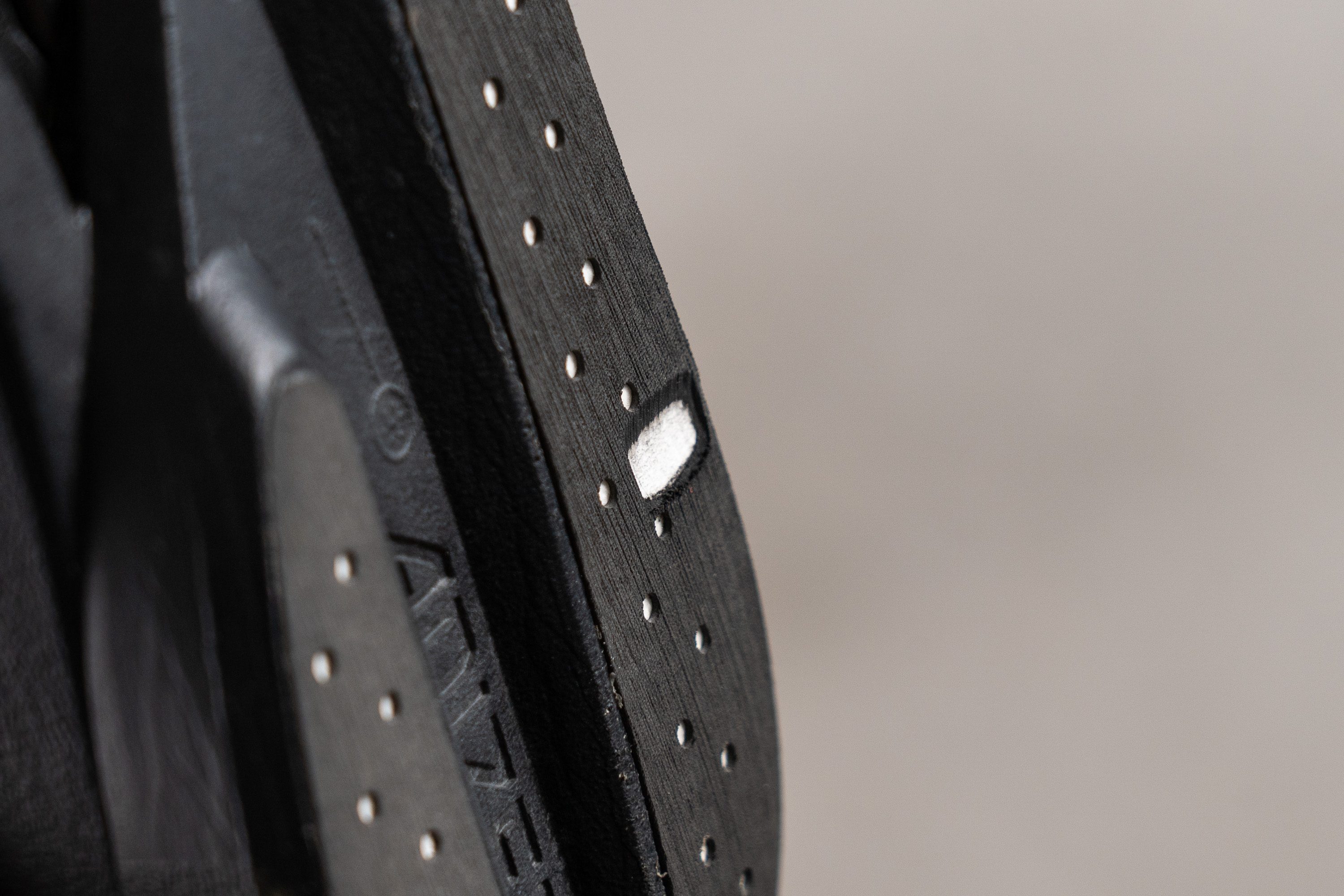
| Adizero Takumi Sen 10 | 1.9 mm |
| Average | 1.1 mm |
Outsole thickness
While some might consider using the Takumi Sen 10 for various types of runs, it's primarily engineered as a competition shoe, making the 1.8-mm rubber entirely appropriate.
This design choice naturally affects durability, as we previously observed, but minimising weight is crucial in terms of performance.
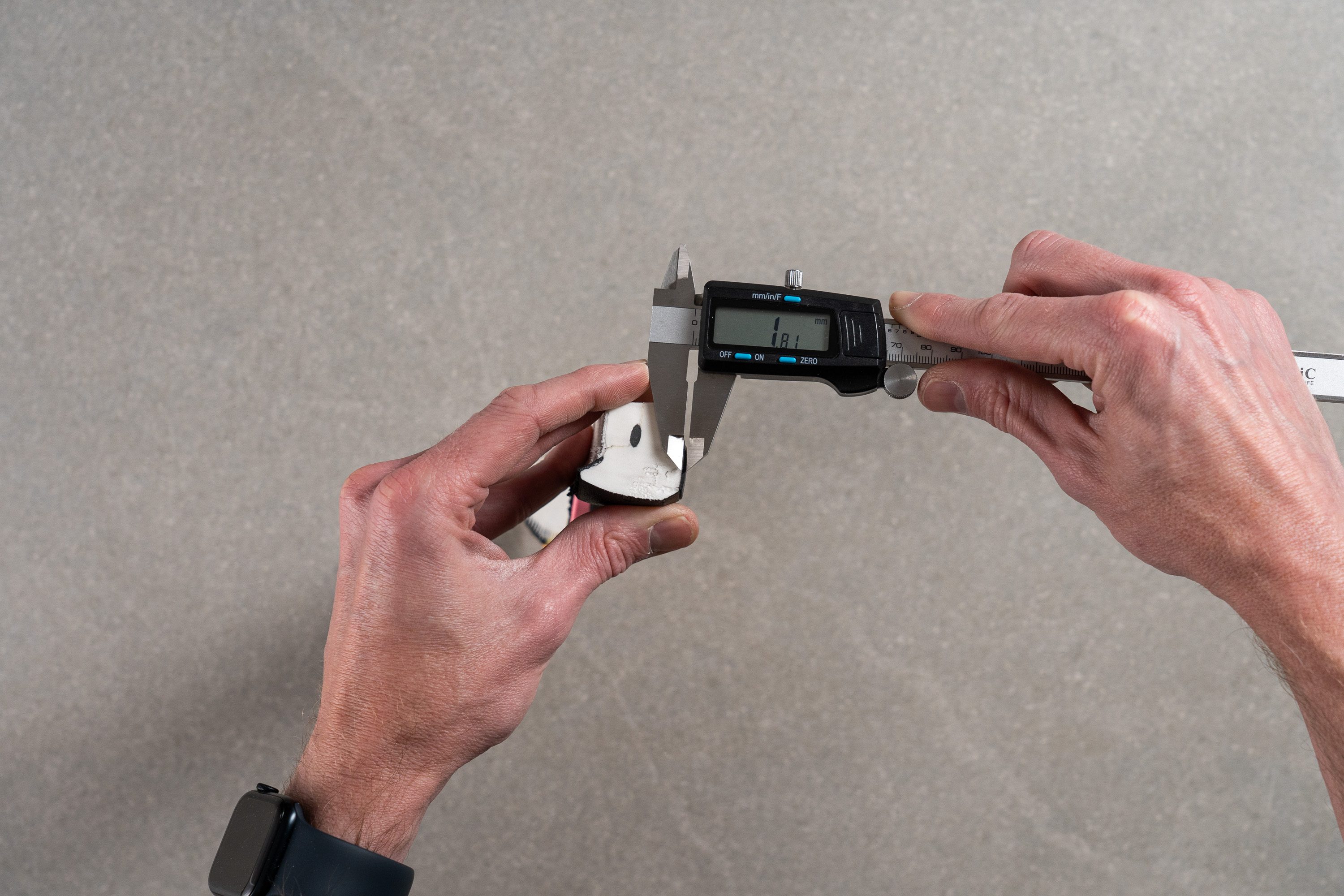
| Adizero Takumi Sen 10 | 1.8 mm |
| Average | 3.2 mm |
Misc
Insole thickness
Given its design as a 5K racing shoe, we expected a thin insole to help minimise weight. And we got it at just 3.4 mm.
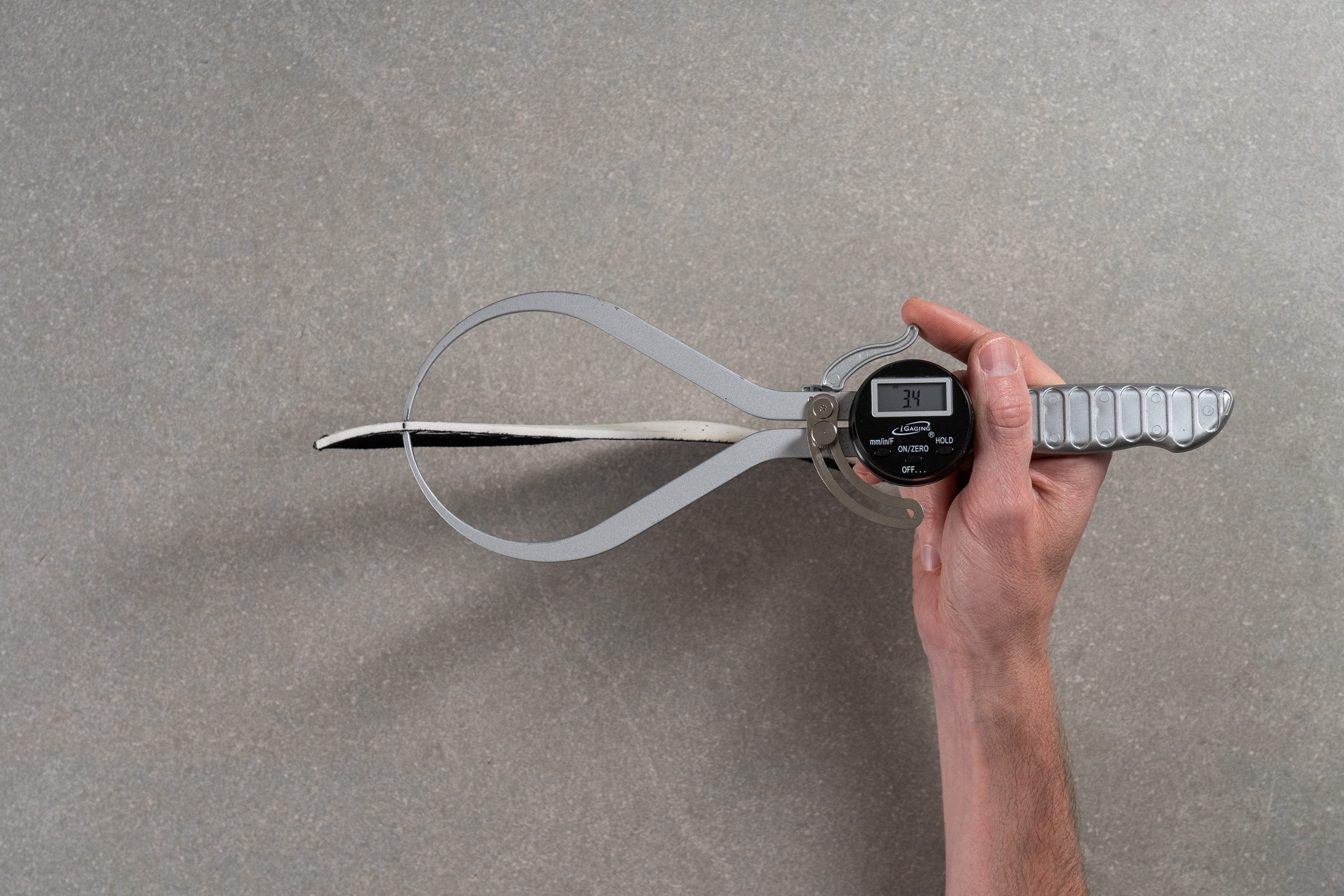
| Adizero Takumi Sen 10 | 3.4 mm |
| Average | 4.5 mm |
Removable insole
We discovered that, unlike many road racing shoes, the insole of the Takumi Sen 10 is not glued to the midsole, allowing us to remove it in just a few seconds.
However, we found that replacing it presents a challenge. The ultra-narrow heel shape means that most aftermarket insoles likely won’t fit perfectly. Moreover, we believe finding another thin, perforated insole as breathable as the original will be difficult.
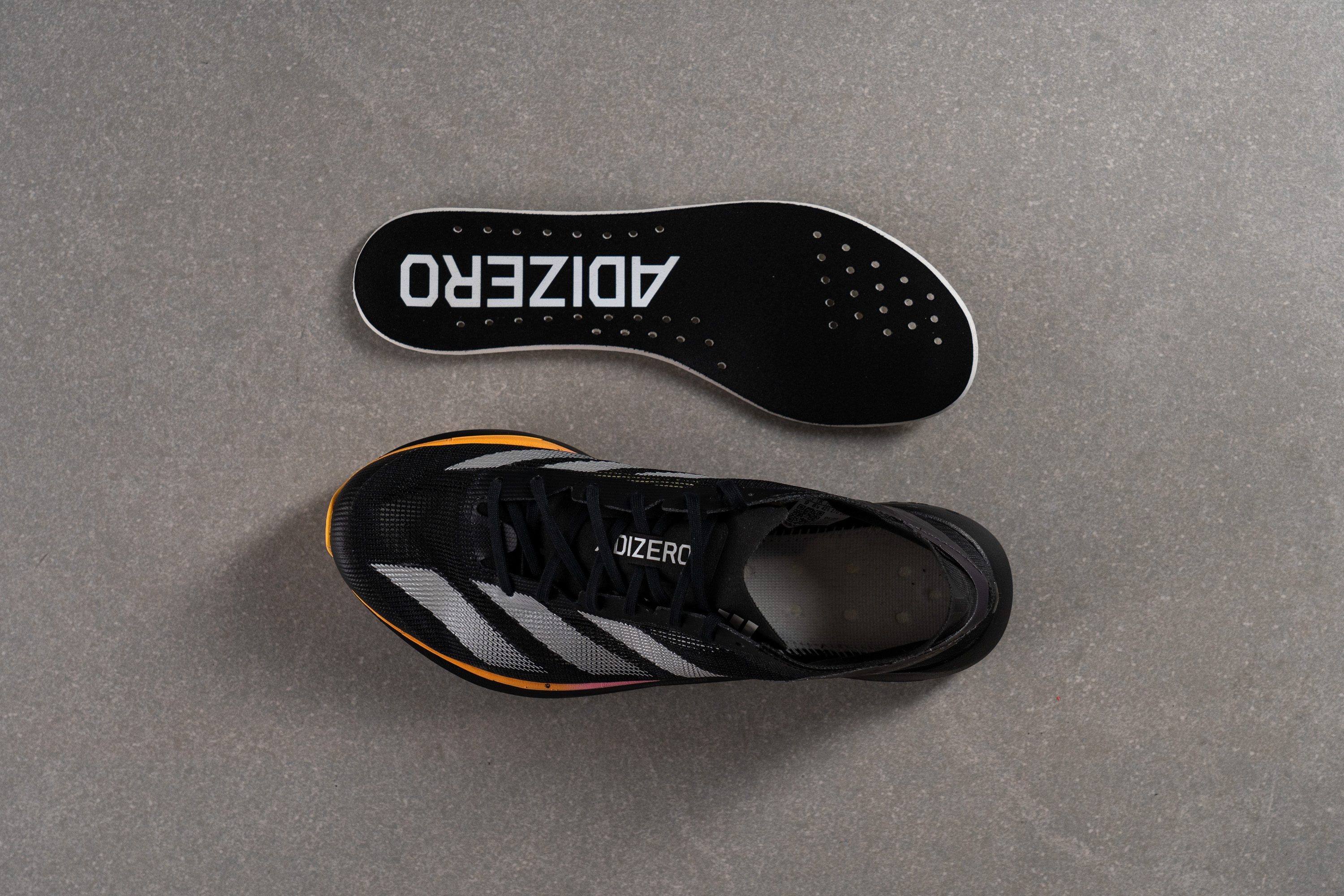
| Adizero Takumi Sen 10 | Yes |
Midsole softness in cold (%)
We found a 17.7% increase in firmness after a 20-minute freezer stint—a very good result. This ensures consistent foam performance regardless of the season you're racing at, which we highly value.
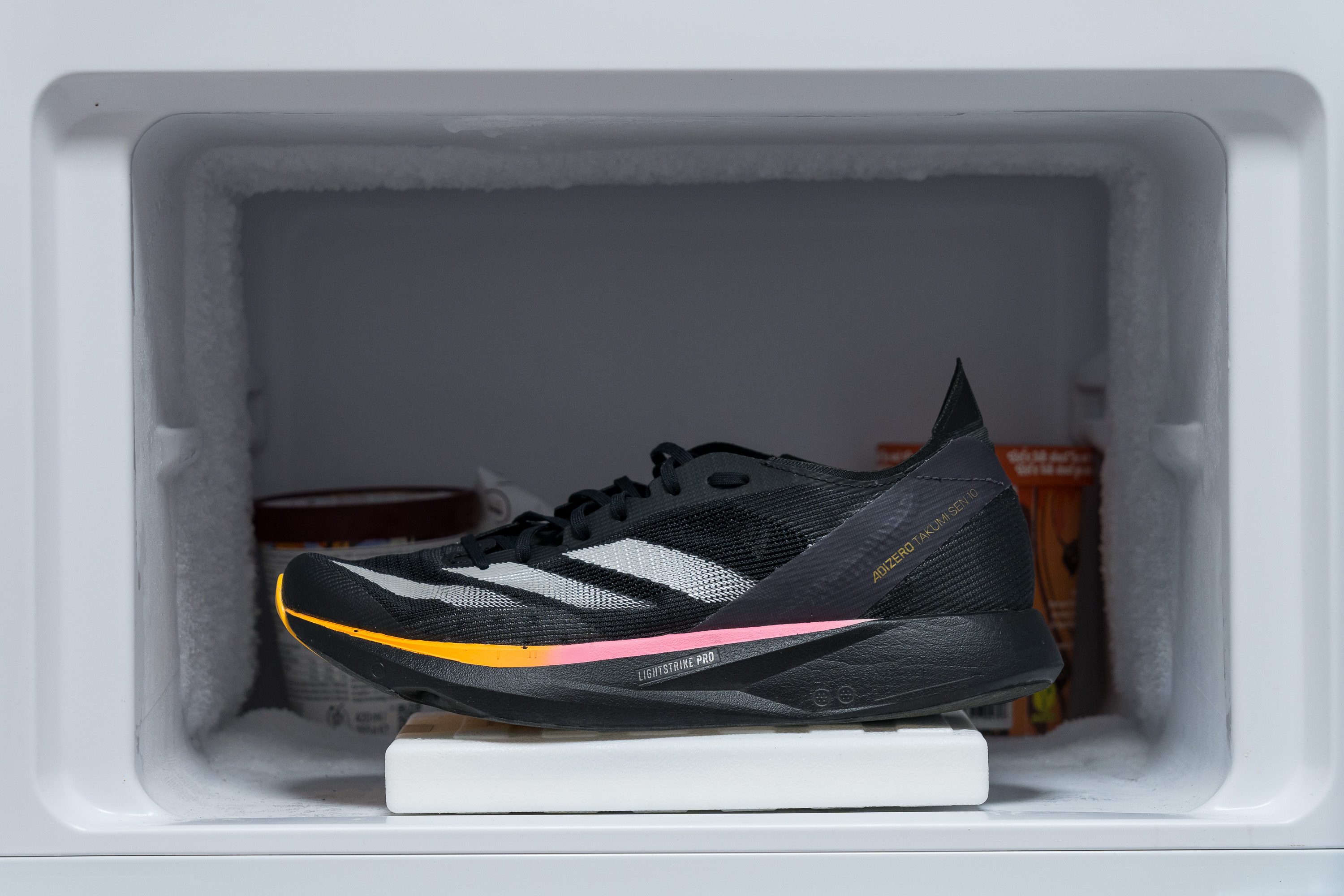
| Adizero Takumi Sen 10 | 18% |
| Average | 24% |
Reflective elements
If you're doing intervals on the track or pushing to the limit in 5K/10K races, reflective elements typically aren't necessary. That's why it's not concerning that the TS10 features... none at all!
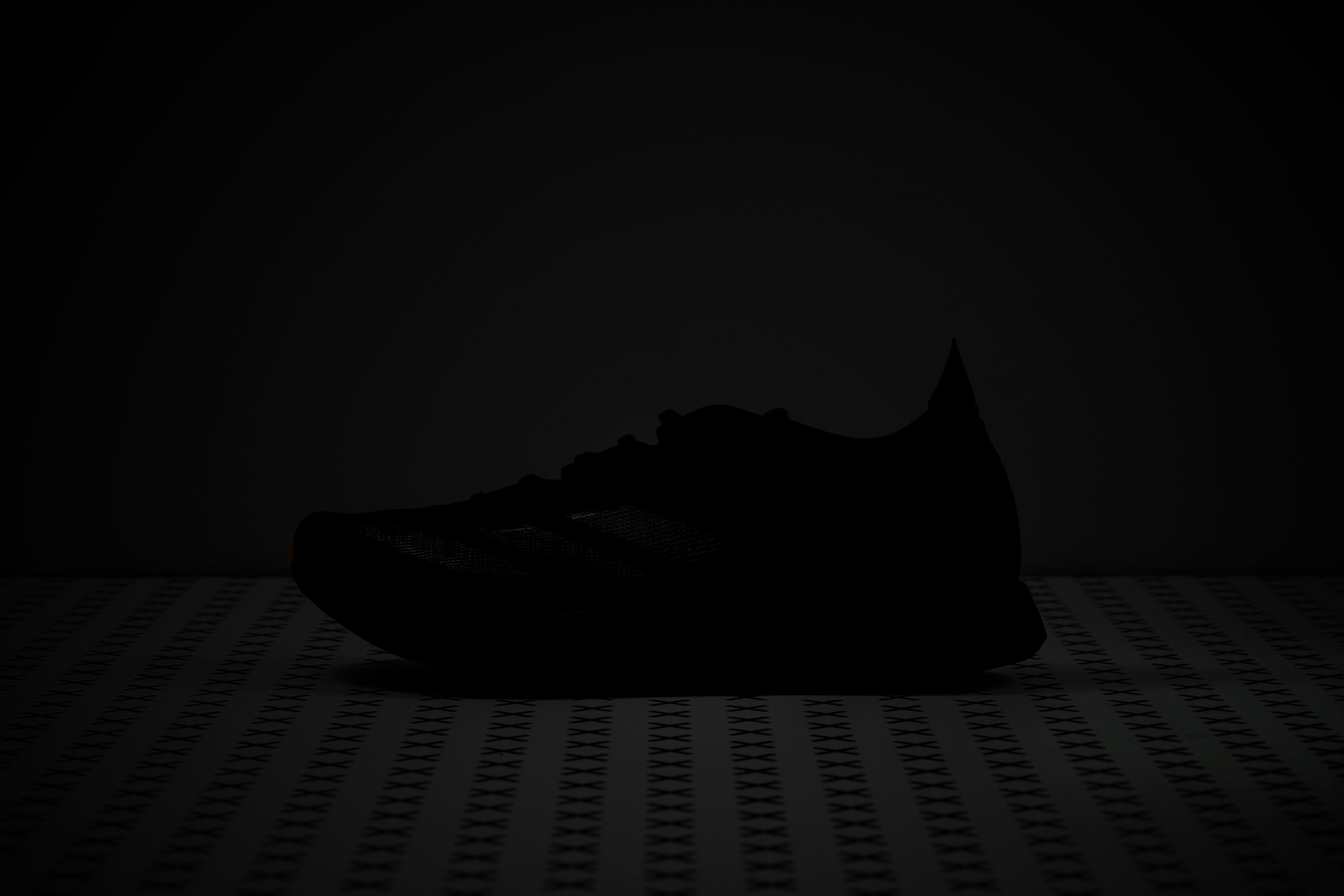
| Adizero Takumi Sen 10 | No |
Tongue padding
While most racers feature razor-thin tongues, the Takumi Sen 10 pleasantly surprised us with a generous 4.0 mm of padding. Adidas smartly focused this padding in areas that endure more lace pressure, while keeping the rest of the tongue as thin as possible.
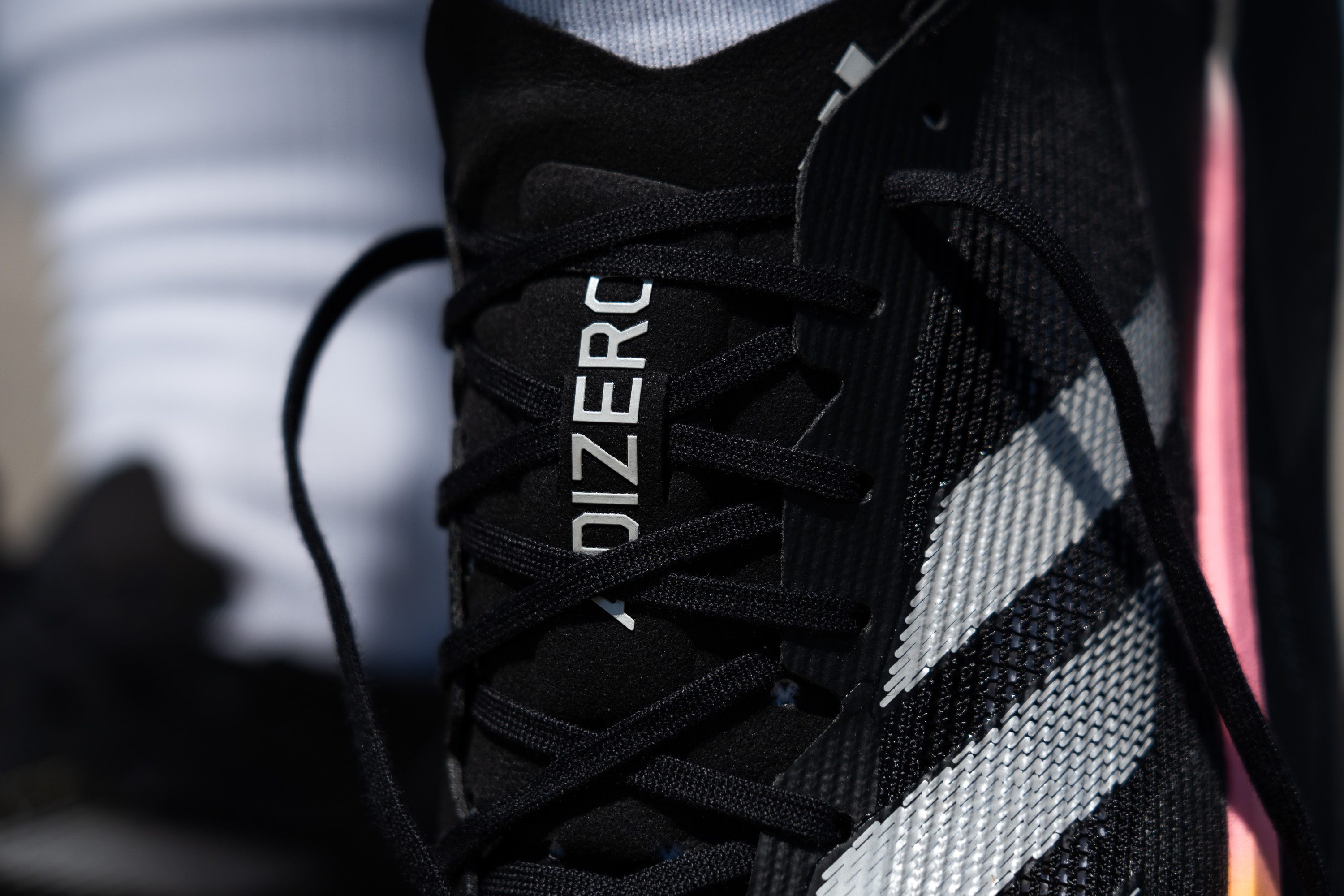
This padding may seem minimal compared to the average shoe, yet it's significantly three to four times the thickness typically found in high-performance super shoes. This thoughtful design choice provides a bit of comfort without compromising the shoe's streamlined, race-ready feel.
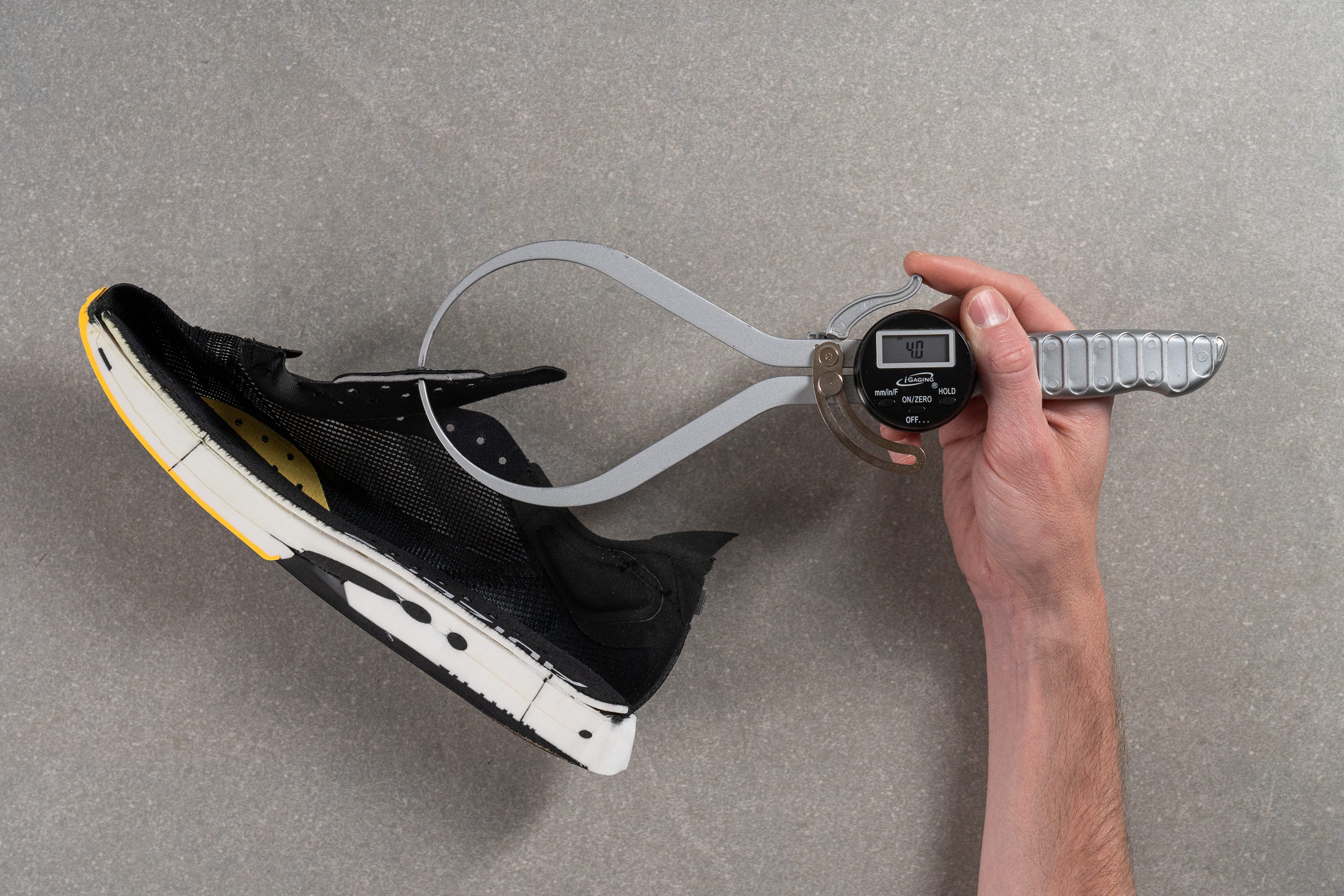
| Adizero Takumi Sen 10 | 4.0 mm |
| Average | 5.7 mm |
Tongue: gusset type
Adidas opted to forego a gusset in the Takumi Sen 10, aiming to shed extra weight (and some money) from the design.
Despite this choice, the shoe's slim profile and snug fit in the forefoot and midfoot ensure that the tongue stays comfortably in place without shifting, and we've experienced no undesired movements during runs.
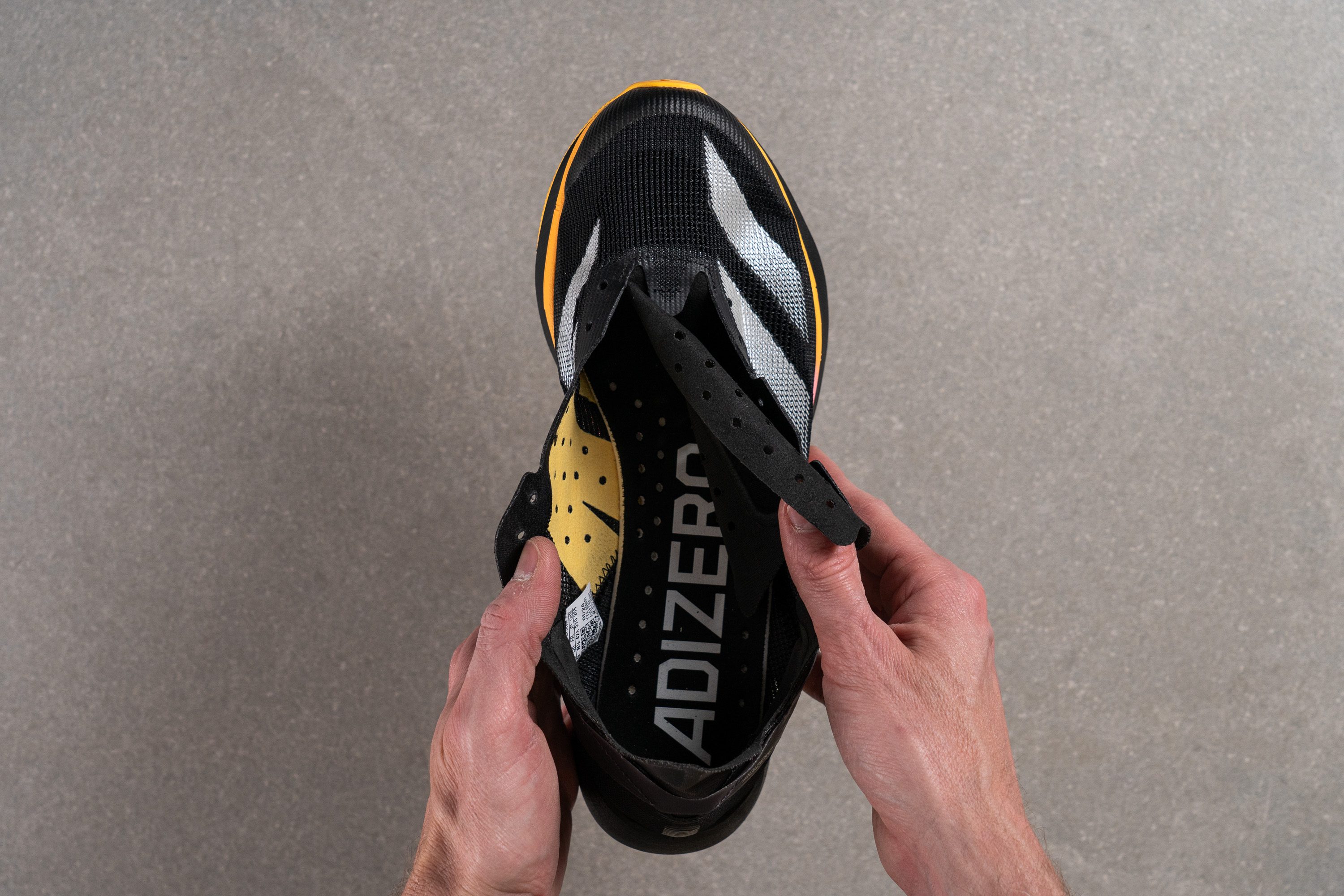
| Adizero Takumi Sen 10 | None |
Heel tab
As part of the Adizero family, we anticipated Adidas would maintain the iconic design language in the Takumi Sen 10, including the flap-like pull tab on the heel—and indeed, there it is!
| Adizero Takumi Sen 10 | Extended heel collar |

